
September/October 2023 TownandCity NEW HAMPSHIRE A PUBLICATION OF NEW HAMPSHIRE MUNICIPAL ASSOCIATION In This Issue: Will New Hampshire Soon See Its First Stormwater Utility? .................. 10 Advanced Recycling of PlasticAn Overview with Lessons from Other States ........................................ 14 Get The Lead Out: Significant New Funding Available ............................ 18 Tracking New Hampshire History Through Town Reports ..................... 28 Building Resilience Against Extreme Weather Events ............................ 38 Pavlicek Retires After 30 Plus Years of Public Service ............................ 44
For three decades, we’ve had the honor of partnering with New Hampshire’s public entities to help them achieve their investment and cash management goals.
Find your reason to celebrate at nhpdip.com
This information is for institutional investor use only, not for further distribution to retail investors, and does not represent an offer to sell or a solicitation of an offer to buy or sell any fund or other security. Investors should consider the Pool’s investment objectives, risks, charges and expenses before investing in the Pool. This and other information about the Pool is available in the Pool’s current Information Statement, which should be read carefully before investing. A copy of the Pool’s Information Statement may be obtained by calling 1-844-464-7347 or is available on the NHPDIP website at www.nhpdip.com. While the Pool seeks to maintain a stable net asset value of $1.00 per share, it is possible to lose money investing in the Pool. An investment in the Pool is not insured or guaranteed by the Federal Deposit Insurance Corporation or any other government agency. Shares of the Pool are distributed by PFM Fund Distributors, Inc., member Financial Industry Regulatory Authority (FINRA) (www.finra.org) and Securities Investor Protection Corporation (SIPC) (www.sipc.org). PFM Fund Distributors, Inc. is an affiliate of PFM Asset Management LLC.

After thirty years, we have a lot to celebrate!
Contents
10 14 18 22 28 32
Will New Hampshire Soon See Its First Stormwater Utility?
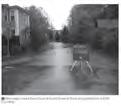
Advanced Recycling of Plastic – An Overview with Lessons from Other States
Get The Lead Out: Significant New Funding Available to Remove Lead from Drinking Water
Northern Long-Eared Bat Reclassification and Project Mitigation Measures



Tracking New Hampshire History Through Town Reports
Legislative Update: Looking for Volunteers

Cover: Rethinking Pleasant Street, City of Claremont, Plan NH Merit Award of Excellence with Honor, 2023 Project Team: City of Claremont, McFarland Johnson, IBI Group, GM2 Associates, BUR Construction
Recognition for Contribution: In the July/August 2023 issue, we listed Victoria Davis, Senior Planner with the Upper Valley Lake Sunapee Regional Planning Commission (UVLSRPC) as the author of the article, Household Hazardous Waste Management, found on page 32. We would like to recognize two other authors, David Jeffers, Regional Planner, and Matt Rose, Solid Waste Planner, from the Lake Regional Planning Commission, for their contributions to this article.
Official Publication of the New Hampshire Municipal Association 25 Triangle Park Drive • Concord, New Hampshire 03301 Phone: 603.224.7447 • Email: nhmainfo@nhmunicipal.org • Website: www.nhmunicipal.org

New Hampshire Municipal Association: NEW HAMPSHIRE TOWN AND CITY (USPS 379-620) (ISSN 0545-171X) is published 6 times a year for $25/member, $50/non-member per year, by the New Hampshire Municipal Association, 25 Triangle Park Drive, Concord, New Hampshire 03301. All rights reserved. Advertising rates will be furnished upon application. Periodical postage paid at Concord, NH 03302. POSTMASTER: Send address changes to NEW HAMPSHIRE TOWN AND CITY, 25 Triangle Park Drive, Concord, NH 03301.
NEW HAMPSHIRE TOWN AND CITY serves as a medium for exchanging ideas and information on municipal affairs for officials of New Hampshire municipalities and county governments. Subscriptions are included as part of the annual dues for New Hampshire Municipal Association membership and are based on NHMA’s subscription policy. Nothing included herein is to be construed as having the endorsement of the NHMA unless so specifically stated. Any reproduction or use of contents requires permission from the publisher. POSTMASTER: Address correction requested.
© Copyright 2023 New Hampshire Municipal Association
1 www.nhmunicipal.org SEPT/OCT 2023
Volume LXVI • Number 5
Table of
Sept/Oct 2023
New Hampshire Town and City Magazine Staff
Director Margaret M.L. Byrnes Editor in Chief Timothy W. Fortier Contributing Editors Margaret M.L. Byrnes Natch Greyes Jonathan Cowal Production/Design Evans Printing Co.
Executive
3 A Message from NHMA Executive Director 4 Happenings 7 Upcoming Events 26-27 NHMA Annual Conference (see center spread) 34 HB 321: Sealed Meeting Minutes Procedure Changes 35 Court Update 36 HR Report: Federal Court Re-Affirms Absolute Immunity from Defamation Claims 38 NHARPC Report: Building Resilience Against Extreme Weather Events 44 Pavlicek Retires After 30 Plus Years of Public Service 46 Legal Q&A: The Right-to-Know Law Ombudsman – an Update 51 This Moment in NHMA History/Name That City or Town 52 Upcoming Webinars
New Hampshire Municipal Association BOARD OF DIRECTORS

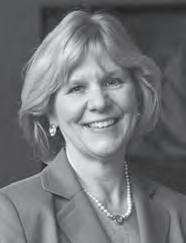



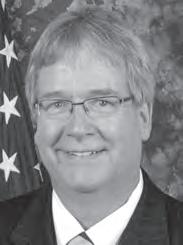
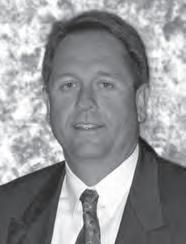






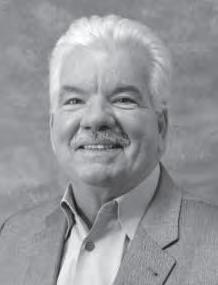











2 NEW HAMPSHIRE TOWN AND CITY www.nhmunicipal.org
Candace Bouchard - Vice Chair City Councilor, Concord
Laura BuonoImmediate Past Chair Town Administrator, Hillsborough
David Caron Town Administrator, Derry
Shelagh Connelly Conservation Commission, Holderness
Phil D’Avanza Planning Board, Goffstown
Stephen Fournier Town Manager, Newmarket
Elizabeth Fox - Chair Asst. City Manager, HR Director, Keene
David Stack Town Manager, Bow
Lisa Drabik - Treasurer Human Resources Director, Manchester
Neil Irvine Town Administrator, Northwood
Patrick Long Alderman, Manchester
Cheryl Lindner - Treasurer Treasury Management Officer, Nashua
Conner MacIver Town Administrator, Barrington
Judie Milner City Manager, Franklin
Jim MaggioreImmediate Past Vice Chair Select Board Member, North Hampton
Dale Girard Mayor, Claremont
April Hibberd Select Board Member, Bethlehem
Jim Michaud Chief Assessor, Hudson
Dennis Shanahan Deputy Mayor, Dover
Holly Larsen Finance Director/Tax Collector, Berlin
Joanne Haight Select Board Chair, Sandwich
Donna Mombourquette Select Board Chair, New Boston
Jeanie Forrester - Secretary Select Board Member, Meredith
Joseph R. Devine Assistant Town Manager, Salem
Shaun Mulholland City Manager, Lebanon
NHMA Executive Director A Message from the Margaret M.L. Byrnes



It’s time to start thinking about legislation! Well, to be fair, our crack advocacy team would tell you it’s always time to be thinking about legislation and advocacy, but it won’t be long now before legislators start filing LSRs (legislative service requests) for the 2024 legislative session. And because 2024 is right around the corner, so is an incredible opportunity for members to get involved with NHMA’s advocacy: the legislative policy process!
NHMA’s advocacy and the legislative positions we take are based on our Legislative Policies and Principles, which are vetted, revised, updated, and adopted by our membership every two years. It is so critical that local officials from municipalities with different government structures, populations, locations, and demographics get involved so that our policies and principles reflect the majority views of our membership. There are several different ways to get involved, whether it’s sending us a policy proposal, serving on a policy committee, or attending the Legislative Policy Conference as a voting delegate. Please refer to pages 32-33 for more information on the process and how you and your municipality can get involved.
ZAP THE GAP! That’s the theme of this year’s annual conference, which is only two months away. Our keynote speaker, Meagan Johnson, will kick our annual event off with her talk “How to Make Peace & Work Effectively in a Multigenerational World.” Our two-day conference will offer 50 educational sessions, ample networking opportunities, and—new this year, in collaboration with the New Hampshire Municipal Managers Association—a Wednesday night dinner event featuring comedian Dewayne Hill! Registration opens mid-September! Refer to pages 26-27 for more information.
Warmest regards,
Of course, in addition to conference, fall at NHMA features some of our most popular annual events, including the Budget & Finance Conference, the Land Use Land Conference, and the Hard Road to Travel Workshop.
We’ll see you soon!
P.S. This summer, NHMA was so pleased to welcome Katherine (Kate) Miller, our legal intern from the University of New Hampshire School of Law! Kate assisted with key legal services projects, such as the Important Dates Calendars and amicus brief writing. We wish Kate a wonderful “2L” experience!
 M.L. Byrnes, NHMA Executive Director
M.L. Byrnes, NHMA Executive Director
3 www.nhmunicipal.org SEPT/OCT 2023
Margaret
Cordell
Representing towns and cities P.O. Box 252 Henniker, NH 03242 603-748-4019 cordell@cajohnston.com
A. Johnston Attorney at Law
HAPPENINGS
CTAP Announces Inaugural Program Recipients First-of-its-Kind Service for NHMA
In June, NHMA launched a new pilot program providing selected New Hampshire municipalities with technical assistance to attain funding for local projects. During this pilot, technical assistance will be provided to 13 municipalities (originally 10 but state funding will support 3 additional projects), all with populations under 10,000.
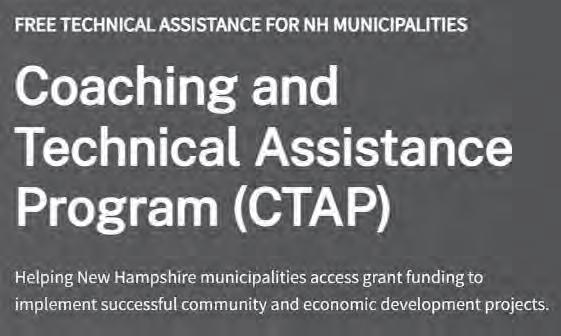
“For years, we have listened to the challenges of our smaller members when attempting to access federal grant dollars,” said Margaret Byrnes, NHMA Executive Director. “We have created a unique model through CTAP providing them with the capacity and expertise they need to compete for these funds and invest in their public infrastructure.”
The goal of this pilot project is to help small New Hampshire municipalities successfully access federal, state, and other funding to implement impactful projects in their communities. In partnership with the Arnett Development Group (ADG, LLC,) technical assistance includes:
• General coaching to talk through and prioritizing community projects.
• Identifying the full range of funding opportunities that may be available for your projects.
• Developing a compelling story for your project that will be attractive to funders.
• Technical assistance on specific grant applications, including developing narratives, project budgets, metrics, and evaluation, and meeting the requirements to successfully submit your grant application.
NHMA received 36 unique entries via the CTAP website, and many applications included multiple project ideas. We did not select, nor eliminate, municipalities because of the quality of the requests. We selected municipalities based upon a variety of factors, including population, location, type of project, and internal capacity.
NHMA ultimately accepted 13 municipalities instead of 10 because the Bureau of Economic Affairs (BEA) agreed to fund coaching for three applicants that fell within the Northern Borders Regional Commission (NBRC) geographic areas. This means we will be able to provide this service to more municipalities without additional cost to NHMA.
NHMA is pleased to announce the following applications have been accepted into this inaugural pilot program. Those selected will be paired with a coach that will provide individualized technical assistance to help attain project funding and implement impactful community projects. Congratulations and good luck to the following towns:
Town of Barrington - Community Center Project
Town of Bow - Water and Sewer Project
Town of Canterbury - Shaker Village Charging Station
Town of Chester - Wason Pond Causeway Bridge Project
Town of Chesterfield - Childcare Facility Project
Town of Colebrook - Library Renovation Project
Town of Croydon - Road Repair Project
Town of Gilmanton - Culvert Project
Town of Hancock - Multiple Projects
4 NEW HAMPSHIRE TOWN AND CITY www.nhmunicipal.org
Town of Kingston - Library Expansion Project
Town of Lisbon - To Be Determined
Town of Marlborough - Community Center Addition and Renovation to Frost Free Library
Town of Whitefield - Library Expansion into a Community Hub
NHMA Rolling Out New Member-Centric Software for 2024!
NHMA is excited to announce that we will be rolling out a new Membership Management Software (MMS) program for 2024, which will streamline tasks by giving members one-stop shopping on:
• Access to your account to make updates to your profile including contact information
• Register for events and pay online
• Look up past event attendance, manage CE certificates and attendance certificates
• Check out the member-only workshop and webinar archive and other training resources
• Manage subscriptions for NewsLink, Legislative Bulletin and New Hampshire Town and City magazine!
The new member-centric, online portal will host everything you need, including resources, tools, payments, registrations, forms and more. First-time members will need to create a new account or log-in to an existing account.
Stay tuned for short tutorials and a webinar on Wednesday, November 29 and a Membership Benefits webinar scheduled for Wednesday, December 13, when we will review this new member service in greater detail.

NLC Connects Eight Cities with More than $100K for Economic Mobility Initiatives: City of Nashua to Receive Up to $15,000 Grant
Through a competitive application process, the National League of Cities has selected eight U.S. cities to participate in its Advancing Economic Mobility Rapid Grant program. This program disperses more than $100K among eight select cities to support local initiatives designed to improve the economic mobility of their residents.
Funds awarded to the cities will be used to launch or expand solutions in one of three key areas: creating quality employment opportunities for residents, providing equitable support to strengthen or start small businesses, or helping residents connect with services or public benefits.
“We know that the economic vitality of a city is directly linked to the economic stability of the people who live there,” NLC CEO and Executive Director Clarence Anthony said. “Through this program, NLC is thrilled to work with this group of eight incredible communities to advance economic mobility for all of their residents.”
Municipalities selected to receive funding through the Advancing Economic Mobility Rapid Grant program include Dallas, Texas; Gaithersburg, Maryland; Honolulu, Hawaii; Nashua, New Hampshire; New Haven, Connecticut; Redmond, Washington; Redwood City, California; and South Bend, Indiana.
Each of the eight selected cities will receive grants of up to $15,000, along with coaching from NLC and peer learning opportunities via NLC’s Economic Mobility Peer Network, to accelerate each municipality’s efforts to test innovative solutions that advance residents’ economic mobility. NLC will showcase the new or expanded initiatives grantee municipalities
5 www.nhmunicipal.org SEPT/OCT 2023
will implement at an Economic Mobility Convening before NLC’s City Summit conference in Atlanta, Georgia, this November.
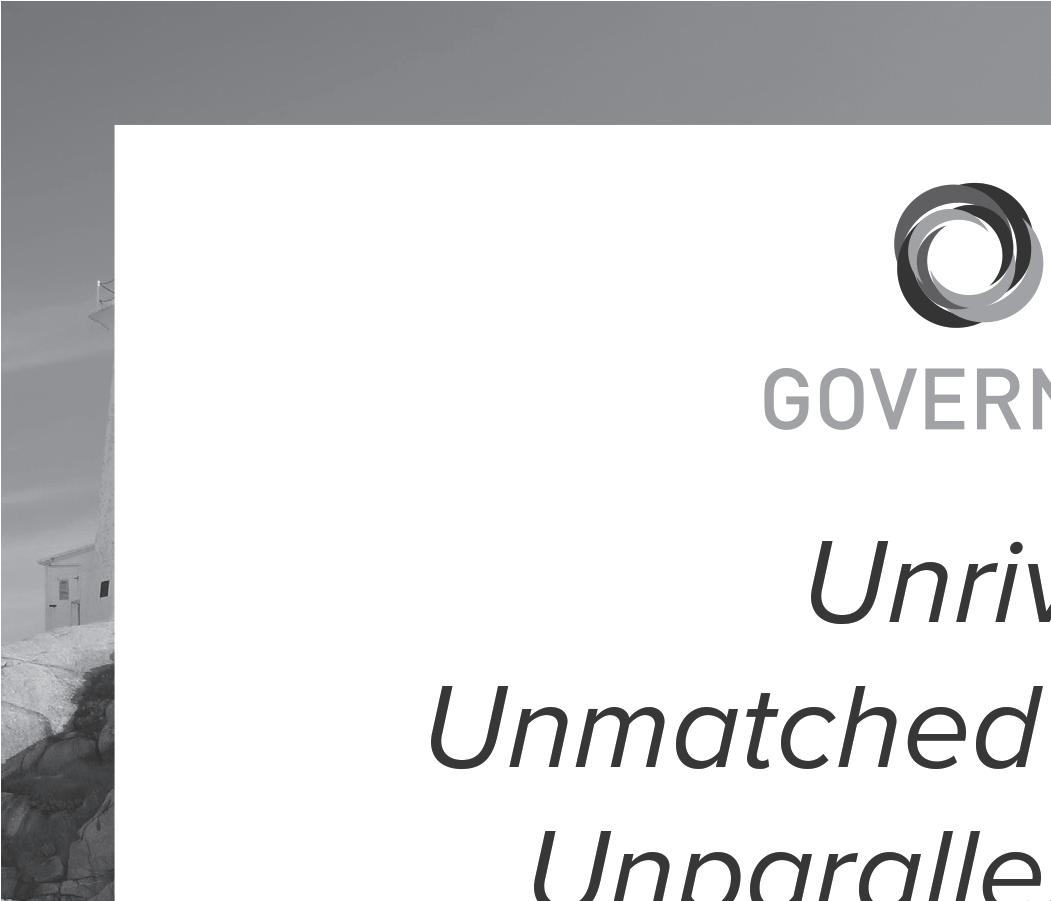
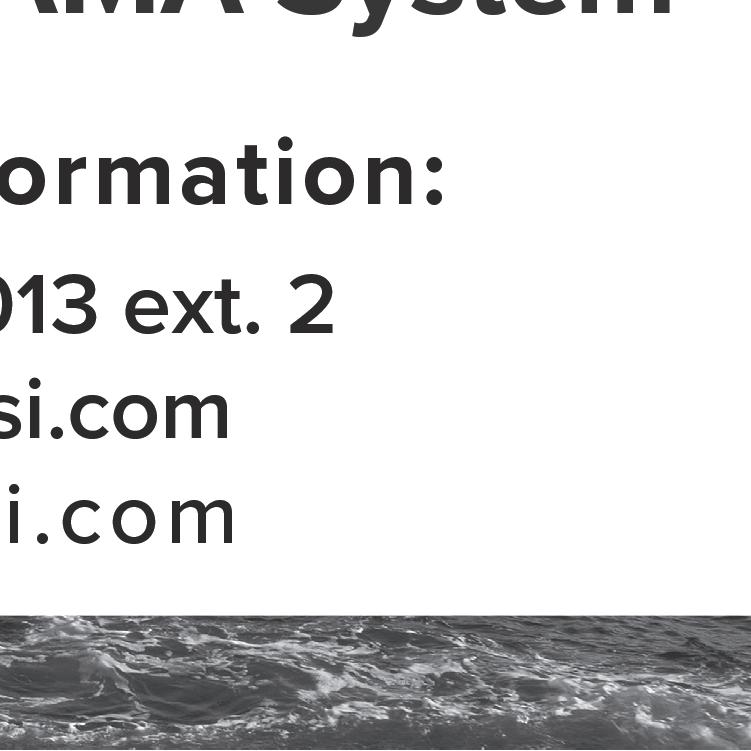
Efforts the selected municipalities will work on during the program include increasing outreach and engagement activities to ensure more residents connect with Special Supplemental Nutrition Program for Women, Infants, and Children and financial services, as well as expanding small business support offerings so small businesses have access to
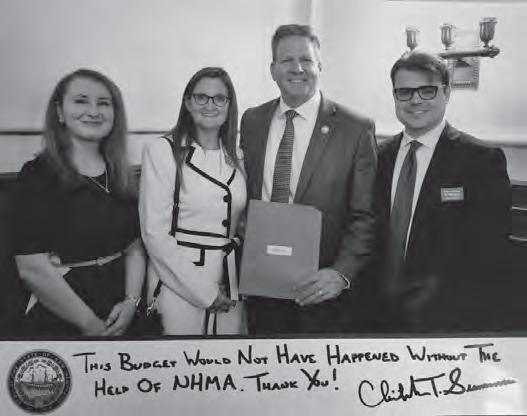
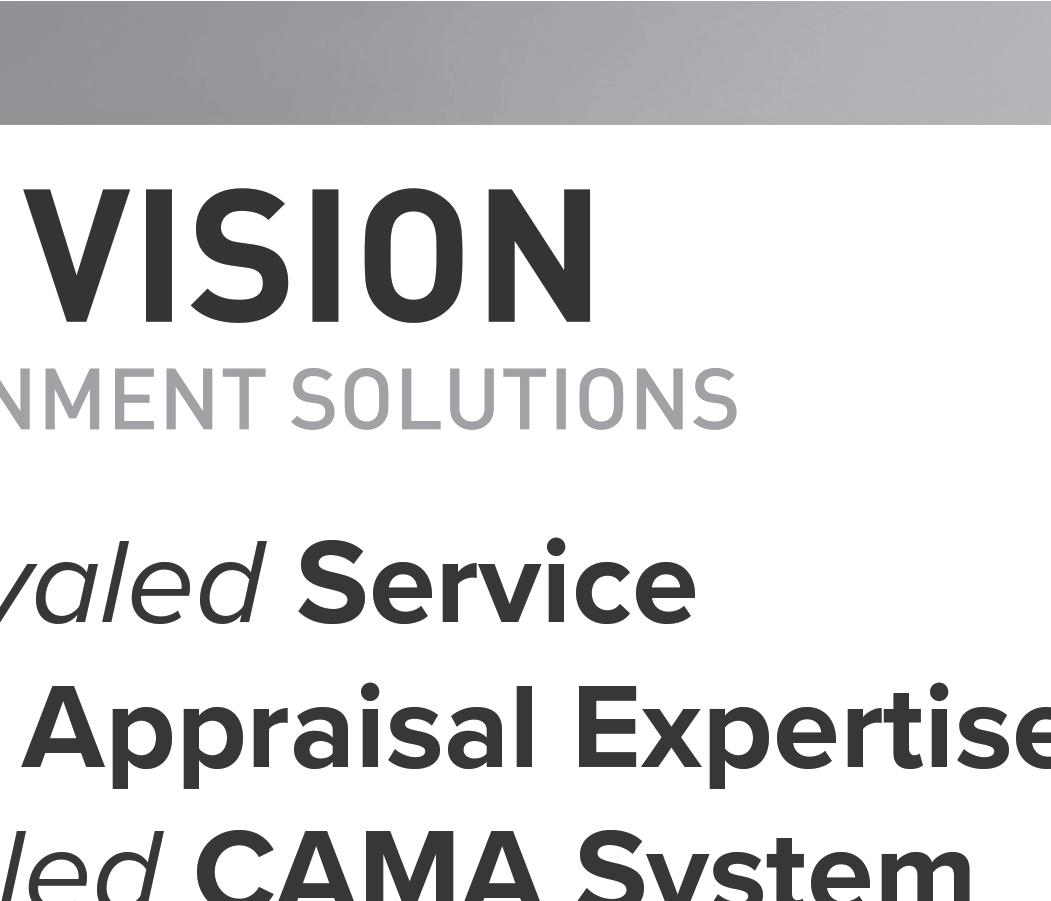

HAPPENINGS from page 5 Unrivaled Service Unparalleled CAMA System Unmatched Appraisal Expertise For More Information: (800) 628-1013 ext. 2 sales@vgsi.com www.vgsi.com
From left to right: Margaret Byrnes, Executive Director; Katherine Heck, Government Finance Advisor; Governor Chris Sununu; and Natch Greyes, Government Affairs Counsel.
Kudos to NHMA’s Government Affairs Team for a successful legislative session.
Upcoming Events
SEPTEMBER
Labor Day (NHMA offices closed)
Monday, September 4
Charter Government in New Hampshire Webinar
12:00 pm – 1:30 pm
Thursday, September 7
2023 Budget & Finance Workshop (Manchester)
9:00 am – 4:30 pm
Tuesday, September 12
The Derryfield, Manchester $100 in-person; $70 virtual
Financial Policies Certificate Program: Internal Controls, Segregation of Duties, Fraud and Risk
9:30 am – 3:30 pm
Wednesday, September 13
25 Triangle Park Drive, Concord Free to members; Non-member costs are $40/half day and $70/full day
2023 Budget & Finance Workshop (Littleton)
9:00 am – 4:30 pm
Tuesday, September 19 Littleton Opera House $100 in-person only
Financial Policies Certificate Program: Policies for Operations and Budgeting
9:00 am – 11:30 am
Wednesday, September 20, 2023
25 Triangle Park Drive, Concord
Free to members; Non-member costs are $40/half day and $70/full day
For more information or to register for an event, visit our online Calendar of Events at www.nhmunicipal.org. If you have any questions, please contact us at nhmaregistrations@nhmunicipal.org.
Financial Policies Certificate Program: Fund Balance Policy
1:00 pm – 3:30 pm
Wednesday, September 20, 2023
25 Triangle Park Drive, Concord Free to members; Non-member costs are $40/half day and $70/full day
Municipal Immunities: What They Are, How They Work, and Why They are Important Webinar
12:00 noon – 1:00 pm
Thursday, September 21

Learn About UNH’s Digitized City and Town Reports Collection Webinar
12:00 noon – 1:00 pm
Tuesday, September 26
Financial Policies Certificate Program: Revenue Policies
9:00 am – 11:30 am
Wednesday, September 27, 2023
25 Triangle Park Drive, Concord Free to members; Non-member costs are $40/half day and $70/full day
Financial Policies Certificate Program: Expenditure Policies
1:00 pm – 3:30 pm
Wednesday, September 27, 2023
25 Triangle Park Drive, Concord Free to members; Non-member costs are $40/half day and $70/full day
www.nhmunicipal.org 7 SEPT/OCT 2023
Upcoming Events
OCTOBER
Hard Road to Travel Workshop
9:00 am – 12:30 pm
Wednesday, October 4
25 Triangle Park Drive, Concord
$65 in-person; $55 virtual
Columbus Day (NHMA offices closed)
Monday, October 9
Right-to-Know Workshop on Meetings and Records
9:00 am – 1:00 pm
Thursday, October 12
25 Triangle Park Drive, Concord
$65 in-person; $55 virtual
Land Use Law Conference (Planning Board)
9:00 am – 3:00 pm
Saturday, October 14
25 Triangle Park Drive, Concord
$90 in-person only
Financial Policies Certificate Program: Investment Policy
9:00am – 11:30 am
Wednesday, October 18, 2023
25 Triangle Park Drive, Concord
Free to members; Non-member costs are $40/half day and $70/full day
Financial Policies Certificate Program: Debt Policy
1:00 pm – 3:30 pm
Wednesday, October 18, 2023
25 Triangle Park Drive, Concord
Free to members; Non-member costs are $40/half day and $70/full day
For more information or to register for an event, visit our online Calendar of Events at www.nhmunicipal.org. If you have any questions, please contact us at nhmaregistrations@nhmunicipal.org.
Right-to-Know Workshop for Law Enforcement
9:00 am – 1:00 pm
Thursday, October 19

25 Triangle Park Drive, Concord
$65 in-person; $55 virtual
NHMA Board of Directors Meeting
9:30 am – 12:00 noon
Friday, October 20
25 Triangle Park Drive, Concord
Land Use Law Conference (ZBA)
9:00 am – 3:00 pm
Saturday, October 21
25 Triangle Park Drive, Concord $90 in-person only
Financial Policies Certificate Program: Capital Planning and Fiscal Capacity
9:00 am – 3:30 pm
Wednesday, October 25, 2023
25 Triangle Park Drive, Concord Free to members; Non-member costs are $40/half day and $70/full day
www.nhmunicipal.org 8 NEW HAMPSHIRE TOWN AND CITY



9 www.nhmunicipal.org SEPT/OCT 2023 STREETS · BUILDINGS · SCHOOLS New England, in its best light AMERICAN BUILT ASSEMBLED WITH PRIDE IN DOVER, NEW HAMPSHIRE BY US VETERANS Comprehensive audits Built in New Hampshire Installation management NH Saves incentive paperwork Utility billing adjustment Safe disposal & recycling Your partner for community-wide lighting upgrades led lighting af f init AFFINITY LED .COM
Will New Hampshire Soon See Its First Stormwater Utility?
 By: Hadley Barndollar, New Hampshire Bulletin
By: Hadley Barndollar, New Hampshire Bulletin
Fifteen years after New Hampshire state law allowed towns and cities to form their own stormwater utilities, not a single municipality has successfully enacted one.
The funding mechanism is becoming more attractive for many communities as they grapple with aging infrastructure and climate change-induced rainfall, flooding, and sea-level rise. But it’s been an uphill battle in the state to see the formation of a stormwater utility. The city of Dover could be the first, if its city council votes to formally adopt an ordinance currently in the draft phase.
Property owners typically pay for stormwater systems via their property taxes. If a municipality forms a stormwater utility, that infrastructure is no longer funded through general funds, and instead becomes its own fee, just as residents and business owners pay for water, sewer, or trash.
Under a stormwater utility model, property owners pay based on the amount of impervious surface on their land, such as paved roads, parking lots, roofs, and other surfaces that water cannot easily penetrate. In that sense, municipal planners argue, it’s a more equitable mechanism to fund stormwater infrastructure.
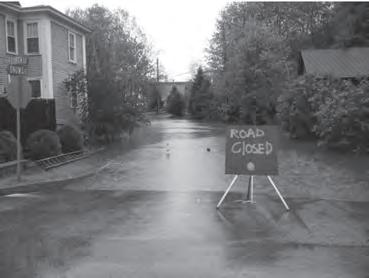
An industrial warehouse or office park surrounded by asphalt would pay more for stormwater than a single-family home on a one-acre wooded lot, for example.
“(Currently), it’s especially disproportionate between singlefamily residences and commercial properties,” said Gretchen Young, environmental projects manager for the city of Dover. “If you break it up, single-family residences are paying about 55 percent of the bill, but they really only account for 25 percent of impervious area. (A utility) has a lot of appeal to the commercial developers because there’s a lot of discrepancy between them, too.”
Over the last five years, Dover’s stormwater budget has increased by nearly 40 percent, largely due to more stringent regulatory requirements. Concord, Manchester, Portsmouth, and Nashua have also explored via feasibility studies and municipal planning processes the possibility of forming stormwater utilities, which have been adopted by upwards of 30 communities in other New England states.
But no New Hampshire municipality has brought one to fruition. Residents who oppose stormwater utilities often call it a “rain tax,” arguing that property owners are being taxed based on how much it rains, something they have no control over.
But one thing municipal officials particularly like about stormwater utilities is that they can be constructed to drive incentives – property owners can see their fee adjusted based on how they’re managing their impervious surfaces.
Steve Landry, supervisor of staff and programs at the New Hampshire Department of Environmental Services’ Watershed Assistance Section, thinks interest in stormwater utilities would grow in the state if one city or town made the leap. “I think we need a community in New Hampshire to take the first step,” Landry said. “It’s going to be a little rough at the start, but as the education and outreach spreads that there’s a way to work within the system and reduce fees, everybody would win at the end of the day because there would be better water quality and less volume for our aging infrastructure.”
10 NEW HAMPSHIRE TOWN AND CITY www.nhmunicipal.org
Stormwater closed Snows Court at Fourth Street in Dover during the floods of 2006.
What is a stormwater utility?
The state of New Hampshire first permitted stormwater utilities under a law passed in 2008. The statute defines a stormwater utility as “a special assessment district established to generate funding specifically for stormwater management.” That could mean flood erosion control, water quality management, ecological preservation, and annual pollutant load contained in stormwater discharge.
A 2017 report by the Piscataqua Region Estuaries Partnership said stormwater utilities can provide “a stable revenue source to support long-term operation and implementation of a municipal stormwater.” Utilities often require that those with the most impervious surfaces pay their fair share, while simultaneously incentivizing reduction of stormwater volumes, PREP said.
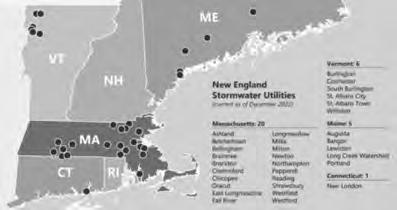
New Hampshire has a significantly aging infrastructure and is susceptible to flooding. And yet no community has a “dedicated financial mechanism” to address sea-level rise, climate change, and more intense storms as they relate to stormwater, Landry said.
There are stormwater utilities in operation across 41 states. In New England, the first was created in 1998, in Chicopee, Massachusetts. Since then, more than 30 other communities in
the region have followed. All of the utilities look different: fees structures range, and so do the incentives.
A feasibility study done by the city of Concord in 2020 looked at other New England communities as examples. Many offer a credit system for properties that implement and maintain stormwater management techniques, while some offer credits for elderly residents or people who participate in education programs.
The fee structure used by the Greater Augusta Utility District in Maine consists of a flat fee for residential properties and a fee for commercial and other non-residential properties based on the amount of impervious surface. The city of Burlington, Vermont, has different monthly fees for single-family, duplex, and triplex residences, while charging $2.47 per 1,000 square-feet of impervious surface for all other properties. The single-family fee totals around $79.20 annually.
Northampton, Massachusetts, offers a rain barrel discount program incentive, one-time credits to residents for rain gardens or porous driveways, and senior and low-income credits.
Stormwater utilities can be a tough sell, Landry noted, because people often view it as “another tax,” though it’s something they’re usually already
paying for as part of their property taxes. Following the comprehensive study done in Concord, the idea didn’t gain much traction and has since been “shelved.” That’s happened elsewhere in the state, too.
The tax sentiment has been evident on a Dover community Facebook page recently, where ahead of a May public information session on a future stormwater utility, a person posted, “Prepare yourself, the city is inching closer to reaching into your wallet with a rain tax.”
A 2013 report by the Environmental Protection Agency examined the role of public outreach and stakeholder engagement in stormwater funding decisions around New England and included Dover’s first attempt at a utility in 2011 in anticipation of more stringent requirements from its federal MS4 permit – a set of stormwater conditions applicable to 60 communities in New Hampshire, 44 of which must comply. The proposal was rejected by the city council following public opposition.
“The specific factors that municipal decision-makers must take into account – such as citizen or business opposition, the policy environment, anti-tax sentiments, chronic flooding, and other issues – will differ from town to town,” the EPA report stated. “Therefore, the specific design of any public outreach and stakeholder engagement strategy must be tailored to uniquely address these factors and related stakeholder concerns.”
Though none have formed in the state, the Department of Environmental Services actively educates about stormwater utilities. Landry believes that’s what needs to keep happening for the general public to gain more awareness.
“There has been long-standing damage done to our stormwater infrastructure, delayed repairs, and the can keeps getting kicked down the road,” he said.
11 www.nhmunicipal.org SEPT/OCT 2023
A graphic from the city of Dover shows where stormwater utilities have been created elsewhere in New England. (screenshot)
“This provides the ability for communities to upgrade that aging drainage and at the same time provide flood protection and resilience. Whatever you want to call it, climate shift, climate change, it’s here.”
‘Continued system flooding’
Dover started looking at the potential of a stormwater utility more than a decade ago, when municipal officials became concerned about financial responsibilities associated with changing MS4 permit. The National Pollutant Discharge Elimination System permit requires certain communities to develop and implement a comprehensive stormwater management plan.
Last month, Dover published a “story map” for property owners providing a visual history of how the city came to begin developing a stormwater and flood resiliency utility.
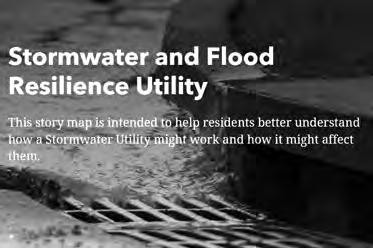
Young, environmental projects manager for the city, said the process wasn’t well-publicized throughout, leading to negative public attention at the end and a dissenting vote by the city council.
As Dover still awaited the revised MS4 permit, it learned it would be subject to the EPA’s new Great Bay Total Nitrogen General Permit, to regulate nitrogen levels in the Great Bay watershed.
This all cued up Dover for its second attempt at establishing a stormwater and flood resiliency utility, a process that’s ongoing. In February 2022, the city council declared its intent to form one via an ordinance.
Young said stormwater infrastructure isn’t something residents and business owners really see, “so you don’t think about it.” But studies done by the city found that 25 percent of stormwater infrastructure in the urban core is at medium to high risk of likely failure. The city identified 24 critical facilities and transportation assets worth over $78 million in high flood risk areas alone, and stormwater runoff has also contributed to the impairment of Willand Pond and the Bellamy, Cocheco, Salmon Falls, and Piscataqua Rivers.
Meanwhile, the city has accumulated at least $5 million in deferred stormwater projects due to insufficient funding, and costs are expected to rise because of increasing federal and state regulatory requirements.
“Not a good report card,” Young said.
According to estimates from city officials, the average Dover homeowner is paying approximately $213 per year in property taxes to fund the combined annual stormwater operating and capital improvement budget of approximately $3.5 million.
The proposed stormwater and flood resilience utility fee, spread over a broader spectrum of properties, “would reduce the average homeowner’s share to fund the same stormwater budget to $110 to $120 per year, depending on the final fee structure.”
Young said there will “absolutely be ways to reduce your fee based on how you’re managing your impervious surfaces” under a stormwater utility model. But even that messaging doesn’t necessarily win over citizens or tax-exempt properties that would suddenly become part of the utility.
While communities in other New England states have successfully implemented stormwater utilities, New Hampshire is a “different regulatory world,” Young said, where people feel strongly about their property rights.
This story is reprinted with permission from Creative Commons license CC BY-NC-ND 4.0. Original article posted June 9, 2023 to New Hampshire Bulletin (Will New Hampshire soon see its first stormwater utility? – New Hampshire Bulletin).
“Dover is celebrating our 400th anniversary this year, it’s old infrastructure,” Young said. “It is definitely part of the conversation more so than it was 12 years ago. We are seeing continued system flooding because of rainstorms – rainstorms we know are getting more intense.”
Author is Hadley Barndollar. Barndollar covers climate, energy, environment, and the opioid crisis for the New Hampshire Bulletin. Previously, she was the New England regional reporter for the USA TODAY Network and was named Reporter of the Year by the New England Newspaper and Press Association. Email: hbarndollar@newhampshirebulletin.com.
12 NEW HAMPSHIRE TOWN AND CITY www.nhmunicipal.org
STORM WATER from page 11
Dover published a “story map” for property owners providing a visual history of how the city came to begin developing a stormwater and flood resiliency utility.


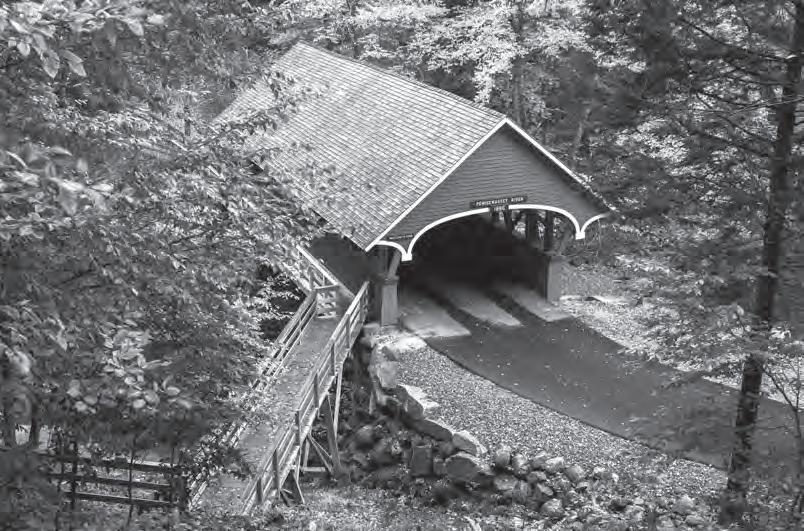
13 www.nhmunicipal.org SEPT/OCT 2023 CONCORD ■ PETERBOROUGH ■ PORTSMOUTH “All our thoughts and notions of civil government are inseparably associated with counties, cities, and towns...” STATE V. HAYES, 1881 uptonhatfield.com | 603-224-7791 MUNICIPAL
Representing Municipalities in all areas including ■ Administration & Finance ■ Land Use ■ Tax Abatements ■ Labor & Employment ■ Environmental Litigation ■ Bankruptcy
LAW GROUP
Advanced Recycling of Plastic – An Overview with Lessons from Other States
By Cynthia Walter, Ph.D. and Susan Richman
Advanced Recycling (AR), also called Chemical or Molecular Recycling, is an industrial process using chemicals and/or extreme heat (pyrolysis) to convert many kinds of plastic waste to fuel, plastic building blocks, or other chemicals. Operation details are not well known due to industrial secrecy laws. In contrast, more traditional mechanical recyclers use only a few types of plastic to shred and reshape into selected products.
Advanced Recycling –coming soon to our state?
AR facilities are appearing across the U.S., and the Granite State looks more attractive than other states due to a 2022 New Hampshire (NH) law that classified AR facilities as manufacturing rather than solid waste plants. [i] Unlike manufacturing, a waste facility, to be permitted, must demonstrate “a substantial public benefit,” economic viability, and meet other criteria. [ii] NH is the only state in New England designating AR as a manufacturing process. However, since 2017, 21 other states have adopted similar laws through lobbying efforts of the American Chemistry Council, a trade group of plastic manufacturers and fossil fuel companies including Exxon, Shell, Chevron and others. [iii]
NH's AR law focuses on facilities planning to sell products from plastic waste for uses other than fuel, unlike some state laws that include plastic-to-fuel operations. In most facilities, however, breaking down plastic produces substances useful as fuel, and the NH law specifically allows operators to burn fuel made from plastic waste inside the facility itself. [iv] NH already has a plastic-to-fuel facility in Groveton that, after several years, remains in a test phase.
NH laws for air emissions apply to all facilities, with specific regulations to limit and monitor emissions depending on expected emission amounts and substances. Unexpected emissions sometimes occur, with serious consequences. The plastic coating facility, Saint Gobain in Merrimack, released unregulated amounts of PFAS for decades, contaminating the Merrimack River and water wells with this persistent chemical. In 2020 the DES issued a new permit to reduce Saint Gobain’s allowed PFAS releases.
This and other PFAS cases illustrate the chronic problem
that laws to control pollutants often lag behind the pace of production of new – or newly identified – hazards. NH and other states would benefit from a practical idea used elsewhere - the precautionary principle. Simply put, each new chemical or process is viewed as potentially harmful, and rigorous independent proof is required well before any public exposure. In NH and the U.S., regulations are not as precautionary, and municipal leaders are wise to be cautious about new industries.
Examples of Advanced Recycling in Other States
In viewing potential risks and benefits from an AR facility, municipal leaders need specifics. Local leaders might be tempted to view a proposed AR facility as a way to gain property tax revenue, redirect waste, or cut the solid waste budget, but leaders need to see the whole picture. Real world examples of AR in other states can help local decision makers judge the full impact of an AR facility in their community.
First, AR does not cut waste collection costs. AR facilities depend on municipalities shouldering that burden. [v]
Second, AR facilities require large amounts of plastic waste. This usually arrives via trucks, e.g., dozens to over 50 deliveries per day, and the waste is often stockpiled, creating a fire hazard. As a fossil fuel derivative, plastic can produce extended fires. Also, burning many plastics produces harmful toxics, including dioxin, a persistent carcinogen carried in smoke. The days-long fire of a plastic waste storage facility in


14 NEW HAMPSHIRE TOWN AND CITY www.nhmunicipal.org
Figure 1: Hazardous smoke from fires at a plastic storage facility in Richmond, Indiana
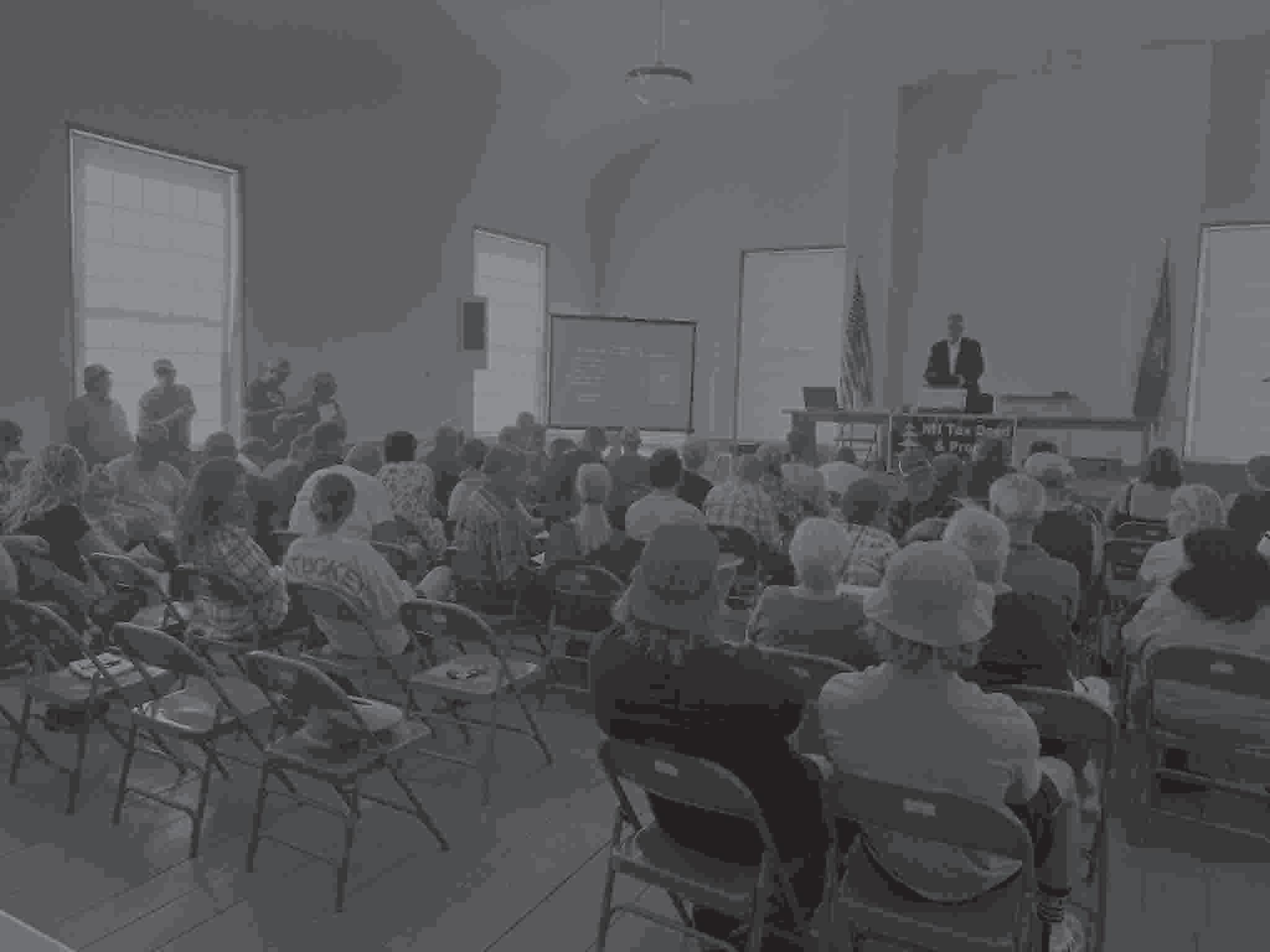

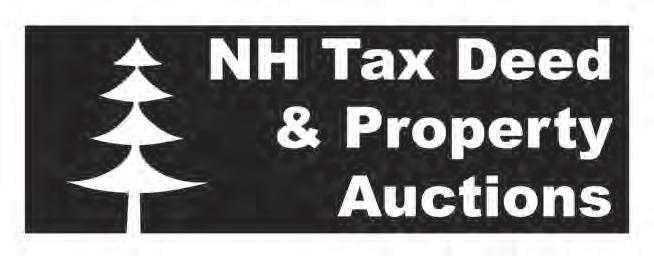
Does your auction company cover the costs of your auction and associated legal work for your tax deed real estate auctions? All-inclusive auction services at little or no cost to your municipality : Decades of experience conducting municipal property auctions for New Hampshire towns and cities Comprehensive auction marketing, including custom- built auction webpage, online and newspaper advertisements, property signage, and notifications to abutters and proprietary bidder email list Preparation of bidder materials for download and distribution Live auction held within the municipality by experienced auction professionals Dedicated help line for answering bidder inquiries Collaboration with law firm Sager & Smith, PLLC to analyze pre -auction legal issues, conduct closings, prepare deeds, locate former owners and lienholders, and distribute excess proceeds 10% buyer’s premium for most auctions NHTaxDeedAuctions.com Rick@NHTaxDeedAuctions.com | (603) 301 -0185 Richard D.
Weston
We do!
Sager, NH Auctioneer (License #6104) & NH Lawyer (Bar #2236)
R. Sager, NH Auctioneer (License #6224) & NH Lawyer (Bar #269463)
RECYCLING PLASTIC from page 14
Richmond, Indiana is an example from this year, [vi] and, in 2021 a plastic-tofuel facility in Ashley, Indiana burned for hours involving a mix of plastic feedstock and fuels in production. [vii] (Figure 1).
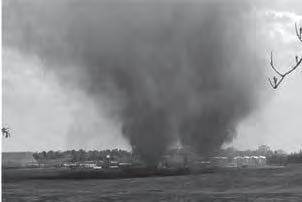
Third, conversions of plastic waste to other products release harmful air pollutants including the following: carcinogens such as dioxin, benzene and formaldehyde; Volatile Organic Compounds (VOC) and ozone triggered by VOC that are respiration hazards; and endocrine disruptor VOCs such as polycyclic aromatic hydrocarbons that mimic hormones like estrogen. Of note, permitted VOC emissions from AR in Ohio and Indiana are 10 to over 100 times greater than VOCs from incinerators in Indiana and New Hampshire. [viii] (Figure 2). Regarding one of the more harmful VOCs, benzene, the AR facility in Indiana can release annually up to 12,840 pounds of benzene while, in contrast, a gasoline station releases about 33 pounds of benzene per year. People living near a cluster of gas stations have a significantly higher cancer risk from benzene. [ix]
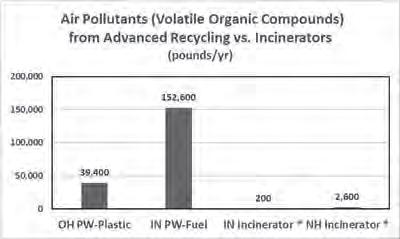
Fourth, solid waste and also some air emissions contain other persistent toxics present in plastic products, including heavy metals such as lead and
organics such as PFAS. Problems with these substances are, unfortunately, too well known in the Granite State. AR facilities in states with strict rules for solid waste handling are now sending their waste to less stringent states where the waste is incinerated or landfilled. [x]
Finally, the failure rate for AR enterprises is high. In recent years, over two dozen AR facilities commenced activities in the U.S., but only eight remain in operation. [xi] In some cases, companies declaring bankruptcy have left behind stockpiles of plastic waste.
Several problems contribute to AR
failures. Expensive chemicals and high amounts of energy are needed to break down plastic polymers. Next, product yields are uncertain when laboratory experiments with known plastic types are upscaled to industrial levels using mixed plastic waste. Lastly, the > 10,000 additives in plastic products make safe handling problematic. [xii]
Let’s look at risks and options to solve waste problems
In sum, municipal leaders need to take an in-depth look at any proposal for an AR facility. This industry’s record has shown serious harm to communities in several cases and high uncertainty overall. These factors are essential in risk analysis efforts crucial in municipal planning. Furthermore, property values, the cornerstone of municipal revenue, are closely linked to increased risk for threats to local air or water quality. For example, regarding the latest major contaminant, PFAS, legal and financial organizations are working to create metrics for the change in value and insurance risks for real estate impacted by this persistent substance. [xiii] Also, the American Society for Testing and Materials includes the presence of ‘forever chemicals’ such as PFAS as a “business environmental
16 NEW HAMPSHIRE TOWN AND CITY www.nhmunicipal.org
Figure 2: Hazardous smoke from fires at a plastic-to-fuel AR plant in Ashley, Indiana
Figure 3: Volatile Organic Compounds (lbs./yr) from Advanced Recycling of Plastic Waste (PW) vs. Large Incinerators (*Standard rate of 250 tons/day.)
risk” in site assessments required for property development. [xiv]
One option for municipal leaders facing AR and other hazardous industries rests in updating ordinances. Without adequate land use ordinances, a municipality has no ability to reject applications for facilities like AR that pose a threat to public health. Across the U.S., cities are enacting such ordinances. The author of a study on planning for pollution prevention writes, “Indeed, the Clean Air Act itself expressly recognizes the important role of local as well as state governments in addressing air pollution. Municipalities may choose to adopt and enforce health codes to protect residents from various air pollutants that cause or aggravate health issues such as asthma.” [xv] Municipalities should ensure they have land use ordinances in place that enable them to safeguard against the public health and environmental impacts associated with AR or similar facilities. Municipal leaders in New Hampshire should consult with their town planner.
Another concern for municipalities is solid waste, and advertisements for AR often present this industry as a partial solution to waste problems. Town leaders, however, might benefit from taking a step back to consider whether the AR industry may actually be perpetuating and even expanding plastic production, consumption and waste. In contrast, leaders could look at new opportunities to cut waste itself. For example, two approaches described below reduce waste and may decrease costs as well: composting food waste and reducing plastic overuse. Composting redirects food waste, a large portion of the weight and cost of waste haulage, and it benefits local farms. Legislation that prioritizes composting (informally known as a “food scraps ban”) has proven highly effective at both diverting waste from landfills and bolstering state economies for Vermont and Massachusetts, for example [xvi].
Municipalities and partner companies operating curbside or drop-off food waste collections can get grants from at least five EPA programs, two USDA grants and several other organizations. [xvii] To curtail the plastic waste stream, grants from governmental or non-governmental groups can help schools, nonprofits and businesses substitute reusable food service ware for throw-away plastic. [xviii] To reduce plastic trash in curbside collection and along roads, many states and cities have policies and ordinances to substantially cut single-use-plastic. Eight states including Maine and Vermont have banned single-use plastic bags, as have municipalities. [xix] Also, the 10 states that enacted bottle deposit/ return laws enjoy over 70% reduction in litter from containers. [xx] Finally, a rapidly growing new business is thriving in New Hampshire and elsewherethe refillery, where plastic containers of personal care and cleaning products are refilled, and customers can purchase non-plastic alternatives.
Going forward, municipalities – municipal leaders and planning boards – face increasingly complex risks that warrant robust planning and land use regulations as they make major decisions, especially regarding prospects of a new and largely untested, opaque industry that goes by the industry's moniker, “advanced recycling”. Examples from other states not only illustrate the full picture of risks for AR impacts, but they also show encouraging alternatives to solve waste problems and keep the Granite State healthy and economically vibrant.
Cynthia Walter is a biologist whose 35year career has focused on pollution abatement, including collaborations with state agency scientists and county emergency planners. Susan Richman is a Board member of the New Hampshire Network for Environment, Energy and Climate. Both authors have experience serving on municipal committees in New Hampshire.
Footnotes -
[i] NH Law: Title X Ch. 149-M Solid Waste Management. I-a. " ‘Advanced recycling’ means a manufacturing process for the conversion of post-use polymers and recovered feedstocks into basic raw materials, feedstock chemicals, and other products like waxes and lubricants through processes that include pyrolysis, gasification, depolymerization, catalytic cracking, reforming, hydrogenation, solvolysis, and other similar technologies. ... the primary products of advanced recycling shall not include hydrocarbons which are marketed, sold, or used as fuel for energy. Incidental products may be used for fuel only within the facility. For the purposes of this chapter, ‘advanced recycling’ shall not be considered solid waste management, solid waste processing, waste processing, treatment, incineration, or combustion.”
[ii] NH solid waste laws (RSA 149-M) employ a permit system for facilities that manage solid waste and require a proposed facility to be a Public Benefit as described by regulations. From Wimsatt 2021 presentation: “Public Benefit Requirement RSA 149 -M:11, III. Solid waste facilities must provide a substantial public benefit … provide capacity for NH-generated waste; … assist state in achieving implementation of hierarchy and goals (RSA 149 -M:2 and M:3; … assist in achieving goals of state and district solid waste plans”... and also “economic viability.” HYPERLINK "https://www.des.nh.gov/sites/g/ files/ehbemt341/files/documents/20211210-swwg-rsa-149m-andregulation.pdf"Presentation on RSA 149-M and Regulation of Solid Waste in NH
[iii]https://www.google.com/url?q=https://www.americanchemistry. com/about-acc/membership/manufacturer-members&sa=D&source= docs&ust=1684857604852154&usg=AOvVaw0FDa3VKfboHpgNY 52BqCkf
[iv] NH Title X Ch. 149-M. I-a allows “incidental products” to be used for fuel in the facility, and this can be over 50% of the plastic waste input.
[v]https://www.google.com/url?q=https://www.houstontx.gov/hrc/&sa =D&source=docs&ust=1684787979110576&usg=AOvVaw1CDmZa LVH6PPzT5PwwLHUo
[vi]https://www.cnn.com/2023/04/11/us/richmond-indiana-recyclingplant-fire/index.html.
[vii]https://www.wane.com/news/local-news/steuben-county-firecrews-battle-fire-at-plastic-renewal-company/
[viii]Values based on air permits for Purecycle in Ohio and Brightmark in Indiana, and state agency websites for incinerator emissions for Covanta Indianapolis Inc. and Wheelabrator in Concord, NH.
[ix] Hseih et al. 2021.Benzene emissions from gas station clusters: a new framework for estimating lifetime cancer risk. Journal of Environmental Health Science and Engineering 19:273–283
[x]https://www.reuters.com/investigates/special-report/environmentplastics-oil-recycling/
[xi] ibid.
[xii] Weisinger et al. 2021. Deep Dive into Plastic Monomers, Additives, and Processing Aids. Environmental Science & Technology 2021 55 (13), 9339-9351
[xiii]https://www.natlawreview.com/article/pfas-what-you-need-toknow-transactions
[xiv]https:/www.nhbr.com/pfas-due-diligence-and-what-they-meanfor-real-estate-development/
[xv] Baptista. 2019. Local Policies for Environmental Justice: A National Scan (planning.org)
[xvi] VT’s success: Belarmino et al. 2023 Impact of Vermont's Food Waste Ban on Residents and Food Businesses. Col. Ag. Life Sci. Fac. Pub. 198., https://scholarworks.uvm.edu/cgi/viewcontent.cgi?article=1
201&context=calsfac and MA’s success: MA DEP Commercial Food Material Disposal Ban, Commercial Food Material Disposal Ban | Mass.gov
[xvii] Links for EPA, USDA and several other sources are available from the authors or M. Nork at the NH DES Waste Division.
[xviii] https://www.plasticfreerestaurants.org/subsidy
[xix] The National Conference of State Legislatures https://www.ncsl. org/environment-and-natural-resources/state-plastic-bag-legislation
[xx] The Container Recycling Institute: https://www.reloopplatform. org/wp-content/uploads/2021/06/DRS-Litter-Fact-Sheet-Summary14June2021.pdf
17 www.nhmunicipal.org SEPT/OCT 2023
Get The Lead Out: Significant New Funding Available to Remove Lead from Drinking Water
By Tom Irwin and Adam Scheckman, Conservation Law Foundation, New Hampshire
It is well known that lead is highly toxic and harmful to people—especially to children and pregnant women— and that there are no safe levels of lead. Unfortunately, outdated and aging drinking water infrastructure in the U.S., and in New Hampshire, can be a source of lead exposure, threatening the health of children and adults who consume it.

Fortunately, the U.S. Environmental Protection Agency (“EPA”) is seeking to replace these outdated systems with new, lead-free infrastructure under the Infrastructure Investment and Jobs Act, also known as the Bipartisan Infrastructure Law (“BIL”). Municipalities can capitalize on this opportunity, and protect their residents from avoidable lead exposures, by seeking funds provided by this law to identify and replace lead service lines.
According to EPA's 7th Drinking Water Assessment, there are 9.2 million lead service lines across the country, with approximately 14,800 lead service lines in New Hampshire. Lead pipes are more likely to be found in older cities and in homes built before 1986, the year when the Safe Drinking Water Act was amended to require lead-free pipes for public water systems. Without complete housing records and public water system inventories, it can be difficult for municipalities to locate all their lead service lines. Once lead service lines are identified and inventories complete, municipalities should ensure outdated and aging infrastructure are fully replaced to provide clean water to its citizens for generations to come. Municipalities throughout New Hampshire can more easily identify and replace their lead service lines by applying for BIL funding through the state’s Drinking Water State Revolving Fund (“DWSRF”).
Bipartisan Infrastructure Law & Drinking Water State Revolving Fund
The BIL is the single-largest investment in water infrastructure in U.S. history, providing $50 billion for essential water, wastewater, and stormwater infrastructure upgrades for fiscal years 2022 through 2026. The majority of this funding
(approximately $43 billion) flows through the State Revolving Funds. The 1996 Amendments to the Safe Drinking Water Act created a Drinking Water State Revolving Fund (“DWSRF”) to provide assistance in the form of low-interest loans to public water systems to finance the cost of drinking water infrastructure. There are three DWSRFs in New Hampshire: the Lead Service Line Replacement DWSRF (“Lead DWSRF”), the General Supplemental DWSRF, and the Emerging Contaminants DWSRF. This article addresses the Lead DWSRF.
The Lead DWSRF
The BIL provides $3 billion annually for fiscal years 2022 through 2026 to identify and replace lead service lines through Lead DWSRFs across the country. States are guaranteed a minimum of one percent of the total funding available no matter how many lead service lines they identify. New Hampshire will receive one percent of the total funds— almost $30 million per year for fiscal years 2022 through 2026—to help community and non-transient non-community water systems identify and replace their lead service lines. Eligible uses for these funds include, among others, identifying lead service lines and fully replacing them.
The BIL mandates that 49 percent of the funds provided through the Lead DWSRF must be provided as grants and forgivable loans to disadvantaged communities, which are defined as communities whose median household income (MHI) is less than the statewide MHI based on the most recent census data and/or income survey. The Lead DWSRF accepts rolling, year-round applications and up to 100 percent forgiveness.
Once pre-applications are approved, projects are invited to submit a Final Application. Applicants should be sure to review the Drinking Water Infrastructure Project Final Application Checklist. Applicants can skip the annual preapplication process and go directly to the final application, but they are required to have authority to borrow from their governing body.
18 NEW HAMPSHIRE TOWN AND CITY www.nhmunicipal.org

19 www.nhmunicipal.org SEPT/OCT 2023 Questions? Email NHMAregistrations@nhmunicipal.org Register online at www.nhmunicipal.org under Calendar of Events 2023 Land Use Law Conference
Small System Lead Service Line Inventory Consultants
EPA’s new Lead and Copper Rule Revision requires each community water system and non-transient noncommunity water system to develop and submit an inventory of all service lines within the water system’s distribution system by October 16, 2024. The inventory is intended to identify the location and material of all lead service lines within public water systems. The New Hampshire Department of Environmental Services (NHDES) has paired four consulting firms with community and non-transient noncommunity small and medium water systems serving fewer than 1,700 service connections. The four consulting firms will help these systems develop and submit their lead service line inventories, replacements, and sampling plans by the October 16, 2024 deadline. Arcadis, Hazen & Sawyer, Underwood Engineers, and Northeast GIS consultants began work in April 2023 and are working directly with each water system to collect, review, and complete the required submittals to NHDES. There is no cost to the water systems for this assistance. Check your water system’s assigned consultant.
Large Public Water System Lead Service Line Inventory Grant
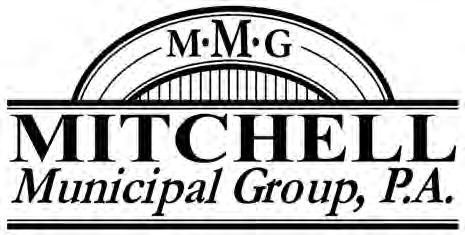
There is also a grant program for large community water systems aimed at lead service line inventory and replacement. Eligible communities (public water systems serving more than 1,700 service connections) interested in receiving this grant must complete the Large PWS LSLI Grant Program Application. There is no deadline for this submittal; however, the deadline to complete inventories and replacement
plans is October 16, 2024. Grants will be distributed on a first come, first served basis. The program budget allows grants of $50,000 to $100,000 based on the number of service connections; importantly, no community match is required. Eligible activities include the following tasks when used for creating the lead service line inventories, sampling plans, and replacement plans: digitizing historic records, building inspections, and water quality testing.
Tackling Lead Drinking Water Infrastructure Together
Preventing lead in drinking water is essential to protecting the health of New Hampshire children and residents. The BIL represents an unprecedented opportunity for municipalities and
public water systems to take action to prevent lead exposures from aging and outdated infrastructure. By seeking these funds, New Hampshire cities and towns can help ensure drinking water is free from lead and help make their communities healthier.
Contacts for More Information:
Stephanie Nistico
Drinking Water and Groundwater Bureau
(603) 271-0867
stephanie.h.nistico@des.nh.gov
Heather Baron
Drinking Water and Groundwater Bureau
(603) 271-5927
heather.l.baron@des.nh.gov
20 NEW HAMPSHIRE TOWN AND CITY www.nhmunicipal.org
GET THE LEAD OUT from page 18
Tom Irwin is Vice President and Director of Conservation Law Foundation in New Hampshire. Adam Scheckman is a student at Vermont Law and Graduate School (J.D. Candidate 2024), where he is also pursuing an M.S. in environmental law and policy. He was CLF New Hampshire’s Cavers Intern during the summer of 2023.
EPA, EPA Announces $62.2 Million for Drinking Water Infrastructure Upgrades in New Hampshire (2023), https://www.epa.gov/ newsreleases/epa-announces-622-million-drinking-water-infrastructureupgrades-new-hampshire; EPA, 7th Drinking Water Infrastructure Needs Survey and Assessment, Exhibit 6 (2023), https://www.epa.gov/system/ files/documents/2023-04/Final_DWINSA%20Public%20Factsheet%20 4.4.23.pdf.
EPA, Protect Your Tap: A Quick Check for Lead (2021), https://www. epa.gov/sites/default/files/2021-05/documents/pyt-case-study-nh.pdf; EPA, Use of Lead Free Pipes, Fittings, Fixtures, Solder, and Flux for Drinking Water (last updated Apr. 11, 2023), https://www.epa.gov/sdwa/use-leadfree-pipes-fittings-fixtures-solder-and-flux-drinking-water.

EPA, Bipartisan Infrastructure Law SRF Funding Status (2023), https:// www.epa.gov/water-infrastructure/bipartisan-infrastructure-law-srf-funding-status; See also EPA, Biden-Harris Administration Announces $6.5 Billion for Drinking Water Infrastructure Upgrades Across the Country (2023), https://www.epa.gov/newsreleases/biden-harris-administrationannounces-65-billion-drinking-water-infrastructure.
EPA, Bipartisan Infrastructure Law SRF Funding Status (2023), https:// www.epa.gov/water-infrastructure/bipartisan-infrastructure-law-srf-funding-status.
NHDES, Drinking Water State Revolving Fund (last visited Jun. 7, 2023), https://www.des.nh.gov/business-and-community/loans-and-grants/ drinking-water-state-revolving-fund.
EPA, Biden-Harris Administration Announces $6.5 Billion for Drinking Water Infrastructure Upgrades Across the Country (2023), https://www. epa.gov/newsreleases/biden-harris-administration-announces-65-billiondrinking-water-infrastructure.
Id.
EPA, FY 2023 Allotments for the Drinking Water State Revolving Fund based on the Seventh Drinking Water Infrastructure Needs Survey and Assessment Memorandum (2023), https://www.epa.gov/system/files/documents/2023-04/Final_FY23%20DWSRF%20Allotment%20Memo%20 and%20Attachments_April%202023.pdf; NHDES, Lead and Copper: Lead Funding Assistance (last visited Jun. 7, 2023), https://www.des. nh.gov/water/drinking-water/public-water-systems/lead-and-copper.
EPA, Implementation of the Clean Water and Drinking Water State Revolving Fund Provisions of the Bipartisan Infrastructure Law Memorandum, Appendix D (2022), https://www.epa.gov/system/files/documents/2022-03/ combined_srf-implementation-memo_final_03.2022.pdf.
EPA, Bipartisan Infrastructure Law: State Revolving Funds Implementation Memorandum (2022), https://www.epa.gov/system/files/ documents/2022-03/bil-srf-memo-fact-sheet-final.pdf; EPA, DWSRF Disadvantaged Community Definitions: A Reference for States, Page 33 (2022), https://www.epa.gov/system/files/documents/2022-10/ DWSRF%20DAC%20Definitions%20Report_October%202022%20 Updates_FINAL_508.pdf.
NHDES, Lead and Copper: Lead Funding Assistance (last visited Jun. 7, 2023), https://www.des.nh.gov/water/drinking-water/public-water-systems/ lead-and-copper.
See State of New Hampshire, Drinking Water Infrastructure Project Final Application Checklist (2023), https://onlineforms.nh.gov/app/#/formversion/aa4360aa-5292-405c-a33c-93a88e1c2aa3?FormTag=NHDESW-03-034.
“Community Water System” is defined as a public water system which serves at least fifteen service connections used by year-round residents or regularly serves at least twenty-five year-round residents. See RSA § 485:1-a.
"Non-transient non-community water system" means a system which is not a community water system and which serves the same twenty-five people, or more, over six months per year. See RSA § 485:1-a.
NHDES, Service Line Inventory (Aug. 15, 2022), https://www.des.nh.gov/ blog/service-line-inventory.
Id.
NHDES, Lead and Copper: Lead Funding Assistance (last visited Jun. 7, 2023), https://www.des.nh.gov/water/drinking-water/public-water-systems/ lead-and-copper.
Id. Id. Id. NHDES, Drinking Water-Related Grants (last visited Jun. 7, 2023), https://www.des.nh.gov/business-and-community/loans-and-grants/drinking-water.
NHDES, Lead and Copper: Lead Funding Assistance (last visited Jun. 7, 2023), https://www.des.nh.gov/water/drinking-water/public-water-systems/ lead-and-copper.

NHDES, Drinking Water-Related Grants (last visited Jun. 7, 2023), https://www.des.nh.gov/business-and-community/loans-and-grants/drinking-water.
Id. Id.
See NHDES, Large Public Water System Lead Service Line Inventory Grant Program (Sep. 28, 2022), https://onlineforms.nh.gov/app/#/formversion/1f7c0d73-0da8-45ec9796-3530ce872799?FormTag=NHDES-W-03-285.
21 www.nhmunicipal.org SEPT/OCT 2023 LANDLORDS: GET THE LEAD OUT! If you own multifamily units built prior to 1978, there’s probably lead paint. Grant funds are available to help eliminate lead hazards in rental units. LEARN MORE: NHHousing.org/lead leadprogram@nhhfa.org 603.404.2306 Up to $12,000/UNIT available in grant funds* Up to $3,000/UNIT for Healthy Homes safety repairs* *Occupants must income qualify at or below 80% Area Median Income. 10% Owner match required. CHILDHOOD LEAD POISONING IS PREVENTABLE. NHH Lead ad_7.25x4.75_NHTC_revised_053123.indd 1 5/31/2023 1:25:27 PM
Northern Long-Eared Bat Reclassification and Project Mitigation Measures
By Nicole Martin, VHB
New Hampshire is home to numerous wildlife species, many of which are protected under the federal Endangered Species Act. The northern long-eared bat (NLEB) is the latest native species to be reclassified as endangered, requiring additional impact assessments, regulatory consultation and mitigation measures. Several recent projects in NH have navigated this new process to avoid potential delays in project development and construction. Additional site assessments of adjacent structures to identify any existing roosting locations can help provide valuable information, and acoustic surveys can be used to demonstrate the probable absence of the NLEB in many cases. Understanding these process changes and additional mitigation measures will help local projects stay on schedule while considering the NLEB, especially if your project is funded or approved by a federal agency.
by an introduced fungal pathogen that has decimated the NLEB population. Other threats to this species include wind turbines, loss of summer habitat, and loss or disturbance to winter hibernating habitat. NLEB is a far-ranging species occurring across 37 states in a variety of habitat types and projects across this footprint must consider impacts to this newly endangered species.
The Endangered Species Act (ESA) of 1973 is the primary law in the United States for protecting imperiled species. Section 7 of the ESA requires federal agencies (also referred to as the action agencies) to ensure that actions they undertake, authorize via permits, or fund (resulting in a federal nexus) are not likely to jeopardize threatened or endangered species or adversely impact any designated critical habitat. Projects that lack a federal nexus are exempt from the ESA Section 7 consultation requirements. However, since no entity is exempt from the ESA Section 9 take prohibitions for federally listed species, applicants for projects that lack a federal nexus may choose to voluntarily consult with the USFWS to have authorization for incidental take that may occur as a result of the proposed action.
The final rule classifying the NLEB as endangered went into effect on March 31, 2023. Preceding the effective date of the ruling, the USFWS released new tools and resources to aid stakeholders in assessing project impacts to NLEB. The online Information for Planning and Consultation (IPaC) System has Determination Keys (DKeys) that streamline consultations for projects that qualify for a predetermined consultation outcome based on a USFWS Programmatic Biological Opinion or Standing Analysis.
Threatened and Endangered Species Update
The northern long-eared bat (Myotis septentrionalis; NLEB) has been reclassified from threatened to endangered by the U.S. Fish and Wildlife Service (USFWS) under the Endangered Species Act (ESA; 16 U.S.C. § 1531 et seq.). Listed as threatened in 2015, the NLEB is endangered with extinction largely due to white nose syndrome, a disease caused
Tools and Resources for Assessing Project Impacts
The FHWA, FRA, FTA Programmatic Consultation for Transportation Projects affecting NLEB or Indiana Bat would be used to conduct the ESA Section 7 Consultation. This DKey only verifies a project’s compliance with the USFWS Programmatic Biological Opinion for Transportation Projects in the Range of the Indiana Bat and Northern Long-Eared Bat
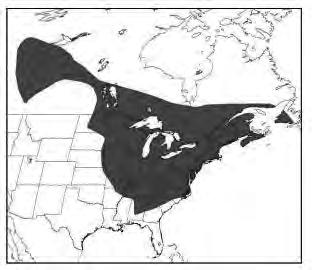
22 NEW HAMPSHIRE TOWN AND CITY www.nhmunicipal.org
(dated February 2018, amended March 23, 2023).
For projects that are funded or authorized by a federal agency other than the FHWA, FRA, or FTA (such as the US Army Corps of Engineers), the Northern Long-Eared Bat Rangewide Determination Key would be used to help determine if the proposed action has the potential to adversely affect the NLEB. This DKey covers a variety of routine and predictable projects for which predetermined consultation outcomes are feasible based on the USFWS Standing Analysis and Implementation Plan – Northern Long-Eared Bat Assisted Determination Key (dated April 2023).
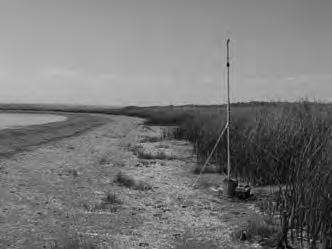
The results of these DKeys may be “no effect” (NE), “not likely to adversely affect” (NLAA), or “likely to adversly affect” (LAA). An NE determination completes the consultation and would likely result if the proposed action does not intersect a known sensitive area for the NLEB. The occurrence of NLEB across its known range has been refined by USFWS via survey data and spatial occupancy modeling. A NLAA determination completes the consultation if no input is received from the USFWS within 15 days of the date of that letter. An MA determination does not complete consultation and requires additional coordination with the USFWS. It should be noted that some projects may fall outside the scope of these DKeys, in which case additional ESA Section 7 consultation with USFWS would be required out-
side of the IPaC system.
Tricolored Bat
On September 13, 2022, the USFWS announced a proposal to list the tricolored bat (Perimyotis subflavus, PESU), which is another bat species that faces extinction due to the impacts of white nose syndrome. A final determination is expected in the fall of 2023. If listed, required consultation for this species would likely follow a similar process to the NLEB consultations.

Avoidance and Mitigation Measures
To support project consultations and potentially remove some Avoidance and Minimization Measures (AMMs) placed on the project as an outcome of the consultation, surveys can be conducted to determine species presence or probable absence (P/A). These efforts include habitat assessments, visual assessments of bridges and culverts, acoustic surveys, and mist-netting.
One of the primary steps to evaluating the potential impacts of a proposed action on NLEB is the initial determination of the presence of suitable habitat within the project’s action area (i.e., forested habitats with trees greater than or equal to 3 inches in diameter at breast height with cracks
or cavities and adjacent non-forested habitats where bats may roost, forage, and travel ).
Visual assessments in bridge and culvert structures may be conducted to identify indicators of roosting bats through auditory and visual cues such as staining and guano. If positive indicators for roosting are present, next steps could include guano sampling for DNA analysis to identify species present, acoustic or emergence surveys, or coordination with the local state or federal agency to assume presence and implement AMMs or other conservation measures.
Acoustic surveys conducted in accordance with the USFWS Range-Wide Indiana Bat and Northern Long-Eared Bat Survey Guidelines (dated March 2023) are a key means to conducting P/A surveys to determine whether a project must incorporate NLEB conservation measures.
Another P/A survey technique is mist netting, which allow for the identification of bats-in-hand. Mist netting is sometimes used as a follow-up to acoustic surveys in states where the range of certain Myotis species overlap because their calls can be difficult to distinguish with acoustic surveys alone. This survey technique requires an ESA Section 10 Species Recovery Permit issued by the USFWS which
23 www.nhmunicipal.org SEPT/OCT 2023
allows for survey methods that require the handling of specific federally listed bat species.
Conservation Measures
General conservation measures to consider during project planning for the NLEB include but are not limited to the following:
► Avoid or minimize the extent of proposed tree removal. If unavoidable, try to avoid or limit tree clearing during the bat’s active season, which is generally considered to be April 15 – October 31 in New Hampshire.
► Avoid or minimize temporary and permanent artificial lighting within 1000 feet of suitable habitat. If lighting must be used, direct away from forested areas and use downward-facing full cut-off lens lights or backlight, uplight, glare (BUG) systems.
► Avoid or minimize intense noise (such as drilling or blasting) that could alter bat behavior or scare them away from roosts.
Nicole Martin is a New Hampshire Certified Wetlands Scientist (CWS) and Environmental Scientist at VHB.
Check our website www.nhmbb.org for interest rate results
Are you planning a capital project for 2024?
We can assist you with your planning by providing various scenarios based on level debt or level principal payments for different terms. Contact us now for your estimated debt schedules.
To schedule a meeting, obtain debt service schedules, or for details about our schedule, fees, Bond Anticipation Note programs, and current interest rates, please contact Tammy J. St. Gelais, Executive Director, at tstgelais@nhmbb.com.
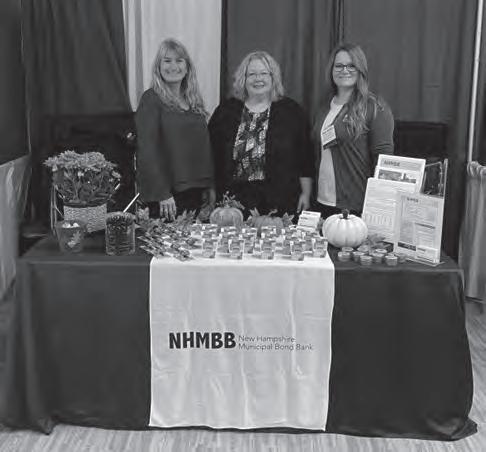
24 NEW HAMPSHIRE TOWN AND CITY www.nhmunicipal.org
will be on
The Bond Bank’s Next Bond Issue
January 9, 2024
July 2023 Bond Sale Results - True Interest Cost for: 5 year loans 3.26% 10 year loans 2.99% 15 year loans 3.35% 20 year loans 3.65% 30 year loans 4.09%
Basic Loan Requirements: • Bond issue approved by governmental entity • Completed application approved by Bond Bank Board •Audit by CPA firm • Local bond counsel opinion LONG-EARED BATS from page 23 Contact us for: Audits of Financial Statements Financial Statement Preparation Accounting Assistance Staff Training Management Advisory Services Accuracy Communication Timeliness Email: info@roberts-greene.com 603-856-8005 PO Box 463 Keene, New Hampshire Roberts & Greene, PLLC Comprehensive Governmental Auditing and Accounting Services
We have all the tools to meet your needs.

Drummond Woodsum’s attorneys are experienced at guiding towns, cities, counties and local governments through a variety of issues including:
• Municipal bonds and public finance
• Land use planning, zoning and enforcement
• Ordinance drafting
• Tax abatement
• General municipal matters
• Municipal employment and labor matters
• Litigation and appeals
We use a team approach – small groups of highly specialized attorneys that work together to offer clients the counsel and support they need, precisely when they need it. It’s an efficient way to practice law. It’s also extremely productive and cost effective for our clients.
Learn more about what our municipal group can do for you: dwmlaw.com | 800.727.1941
25 www.nhmunicipal.org SEPT/OCT 2023
Zap theGap:
Zap theGap:






How to Make Peace & Work Effectively in a Multigenerational World
How to Make Peace & Work Effectively in a Multigenerational World

WEDNESDAY, NOVEMBER 15
WEDNESDAY, NOVEMBER 15


KEYNOTE SPEAKER: Meagan Johnson
KEYNOTE SPEAKER: Meagan Johnson


Meagan is known as a "Generational Humorist" challenges her audiences to think differently and act decisively when dealing with multiple generations.
Meagan is known as a "Generational Humorist" challenges her audiences to think differently and act decisively when dealing with multiple generations.
In her presentation, Zap the Gap: How to Make Peace & Work Effectively in a Multigenerational World,, she explains how each generation developed its values and how these values creep into the workplace and marketplace. Each generation holds fast to its values, so it's important to understand and respect them to bring out the best in everyone.
In her presentation, Zap the Gap: How to Make Peace & Work Effectively in a Multigenerational World,, she explains how each generation developed its values and how these values creep into the workplace and marketplace. Each generation holds fast to its values, so it's important to understand and respect them to bring out the best in everyone.
NEW THIS YEAR! Together with the Municipal Management Association of New Hampshire, we are bringing back the Wednesday night banquet!
NEW THIS YEAR! Together with the Municipal Management Association of New Hampshire, we are bringing back the Wednesday night banquet!
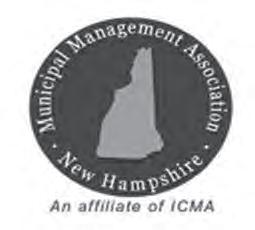



Mark your calendars to join us Wednesday night for award recognitions, big laughs, great fun and entertainment. Only $30 per person!
Mark your calendars to join us Wednesday night for award recognitions, big laughs, great fun and entertainment. Only $30 per person!


We hope you will join us on Wednesday night for these social festivities.
We hope you will join us on Wednesday night for these social festivities.
Thank you Sponsors!
Thank you Sponsors!
26 NEW HAMPSHIRE TOWN AND CITY www.nhmunicipal.org Conference Legislative Laws; Pavement Community
Who Mayors; sors; spectors
NHMA’s 82nd Annual Conference and Exhibition
NHMA’s 82nd Annual Conference and Exhibition
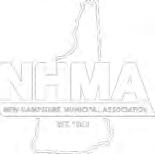
Wednesday,
Wednesday, November 15 and Thursday November 16
November 15 and Thursday November 16
DoubleTree by Hilton Downtown Manchester Hotel Manchester, New Hampshire
DoubleTree by Hilton Downtown Manchester Hotel Manchester, New Hampshire

Conference Sessions Include:
Conference Sessions Include:
Legislative and Court Updates; Right -to-Know Law Meetings & Records; Cyber Attack Simulation; Complying with Labor Laws; Recycling 101; First Amendment Audits; Community Engagement; Pitfalls in Tax Deeding; Effective Employee Discipline; Pavement Preservation; Meeting Minutes; Special Assessment Districts; Invasive Species Control; Community Power; Financing Community Projects; Lease Purchase Agreements; Municipal Solar and much, much more...
Legislative and Court Updates; Right -to-Know Law Meetings & Records; Cyber Attack Simulation; Complying with Labor Laws; Recycling 101; First Amendment Audits; Community Engagement; Pitfalls in Tax Deeding; Effective Employee Discipline; Pavement Preservation; Meeting Minutes; Special Assessment Districts; Invasive Species Control; Community Power; Financing Community Projects; Lease Purchase Agreements; Municipal Solar and much, much more...
Who Should Attend?
Who Should Attend?
Mayors; Select Boards; Council Members; Municipal Managers; Finance Officers; Public Works; Road Agents; Planners: Assessors; Welfare Officials; Code Enforcement; Information Technology; Cemetery Trustees, Trustees of Trust Funds, Building Inspectors and anyone in municipal government!
Mayors; Select Boards; Council Members; Municipal Managers; Finance Officers; Public Works; Road Agents; Planners: Assessors; Welfare Officials; Code Enforcement; Information Technology; Cemetery Trustees, Trustees of Trust Funds, Building Inspectors and anyone in municipal government!
Member Rates
Member Rates
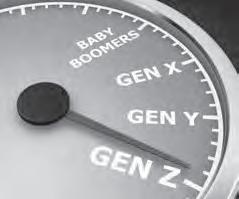
(1 day)=$135 ($125 if pay electronically) (2 days)=$175 ($165 if pay electronically)
(1 day)=$135 ($125 if pay electronically)
(2 days)=$175 ($165 if pay electronically)
Affiliate Member/State Agency/Non -member Rates
Affiliate Member/State Agency/Non -member Rates
(1 day)=$190 ($180 if pay electronically) (2 days)=$240 ($230 if pay electronically)
(1 day)=$190 ($180 if pay electronically)
(2 days)=$240 ($230 if pay electronically)
Please join us at 5:30 pm on Wednesday, November 15th for this evening of fun, laughs, networking and great entertainment. Tickets only $30!
Please join us at 5:30 pm on Wednesday, November 15th for this evening of fun, laughs, networking and great entertainment. Tickets only $30!
Comedy Magician Dewayne Hill started performing magic at the age of 16. After performing two professional shows, he received the attention of a local TV show producer and was asked to be a guest on the show to perform. After several articles and news clips hit the press Dewayne started performing in a local comedy club. It was here where he perfected the art of joking and storytelling while performing amazing magic tricks. You won’t want to miss this show!
Comedy Magician Dewayne Hill started performing magic at the age of 16. After performing two professional shows, he received the attention of a local TV show producer and was asked to be a guest on the show to perform. After several articles and news clips hit the press Dewayne started performing in a local comedy club. It was here where he perfected the art of joking and storytelling while performing amazing magic tricks. You won’t want to miss this show!

Getinspired,learnsomethingnew,connectwithmunicipalcolleagues, gainskillsandbringthisnewfoundknowledgebacktoyourcityandtown!
For details, visit www.nhmunicipal.org under Calendar of Events.
For details, visit www.nhmunicipal.org under Calendar of Events.
Questions? Call 603.230.3350 or email conference@nhmunicipal.org
Questions? Call 603.230.3350 or email conference@nhmunicipal.org
27 www.nhmunicipal.org SEPT/OCT 2023
gainskillsandbringthisnewfoundknowledgebacktoyourcityandtown!
Getinspired,learnsomethingnew,connectwithmunicipalcolleagues,
Tracking New Hampshire History Through Town Reports
By Samantha Bradbury Koster, Library Communication Manager, UNH Library
Over the course of 15 years, the University of New Hampshire Library (UNH Library) has been working with town clerks across the state, and Internet Archive to digitize New Hampshire municipal annual town reports starting as early as the 1800s. Earlier this year, this monumental project was completed with the help of the New Hampshire State Library (NHSL) and American Rescue Plan Act (ARPA) funds to finish scanning, digitizing, and categorizing more than 19,000 additional reports from 234 towns, 8 village districts, and 2 extinct towns. The now complete collection contains all known reports from the UNH and NHSL collections, 34,302 reports and counting.
the initial scanning of 14,900 reports from the UNH Library collection between 2008 and 2013. The town reports project began as a UNH library initiative to save space and improve access as the library moves toward digital collections and e-books over physical collections.
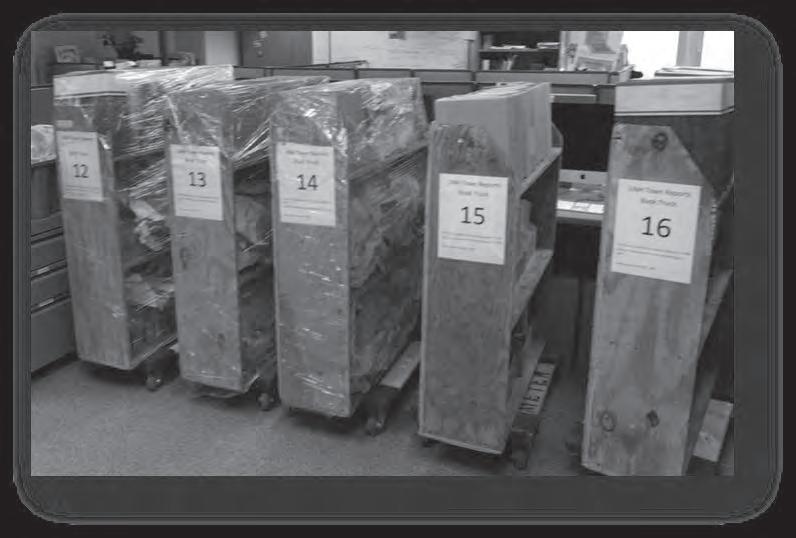
The process of digitizing this collection was entirely manual from initial contact with a report, filing and packaging a report, shipping reports, to scanning. Once the reports were received by Internet Archive, each page was then scanned one at a time. The scanning time per report varied based on the length and condition of the report. Some reports, especially from the 1800s to early 1900s, needed to be handled with care due to age and condition. Reports also vary in length, from a succinct 5-10 pages to more detailed 200 - 300 plus pages. Once each report was scanned, it was repackaged and shipped back to UNH Library where they were carefully reshelved in the UNH Library collection or returned to the NH State Library.
“A project of this magnitude takes many partners and many years to come together, and we were honored to work with the New Hampshire State Library with funding from the U.S. Institute of Museum and Library Services, as well as with the Internet Archive, to digitize these historical records,” Tara Fulton, Dean of the UNH Library, says. “Now anyone can go to the internet and visit the UNH Scholars Repository to browse New Hampshire town reports, and they can also search for specific information by year or by topic. That’s what libraries do – we collect information sources, preserve them, and use the latest technologies to make them accessible.”
The digitization of NH town annual reports started in 2008 when the New England Regional Digitization Center at the Boston Public Library opened. The UNH Library contracted with the center, which is run by Internet Archive, to begin
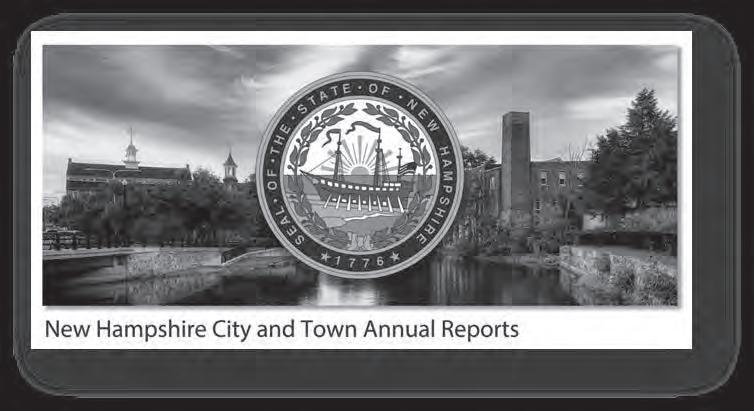
After 2013, when the work with Internet Archive ended, the UNH Library returned to digitizing the reports as time and resources allowed between other projects. Without additional funding and the help of Internet Archive, it was estimated to take UNH Library Digital Services more than 160 years to complete the backlog alone, at approximately 117 reports a year. From 2013 to 2020, the UNH Library was only able to add 800 reports to the collection, approximately a 96% decrease in progress compared to outsourcing the work.
During the COVID-19 pandemic the project took a surprising turn. Sarah Stinson, digital collections coordinator and manager of this town reports project after 2017, explained that while the transition to remote work was a challenge at first, the time and flexibility the pandemic created allowed UNH Library staff to hone in on the town reports to transcribe titles. In the early stages of scanning town reports, the reports were given generic titles such as “Annual reports for the Town of Bristol, New Hampshire, 1916,” instead of their longer, original titles like “Annual Reports of the Selectman, Road Agent Board of Education School Board, Firewards Trustees
28 NEW HAMPSHIRE TOWN AND CITY www.nhmunicipal.org

29 www.nhmunicipal.org SEPT/OCT 2023
Minot-Sleeper Library and Park Commission of the Town of Bristol for the year ending Feb. 15, 1916.” While the generic title was more concise and took less time to document, the original title increases discoverability.
The COVID project’s goal was to add titles and dates to metadata records to the then-scanned 15,000 reports. It was estimated to take 3 minutes per record to update the title and metadata of each report, which was projected to take 750
Molly Gearhart, one of the student workers assisting with the title project, among other tasks. “It could be a lot, but working with the digital collections team made it easier and worthwhile.”

Like scanning, this work was done one by one and is tedious work that requires incredible attention to detail. To make sure the titles were cataloged correctly, each report was also checked for accuracy, which means all 15,000 reports were reviewed multiple times throughout the process.
In the spring of 2021, NHSL invited UNH Library to apply for the American Rescue Plan funds-grant funds the NHSL was being tasked to distribute to libraries across the state as part of COVID-19 relief. As the designated repository for the printed town and city reports, NHSL approved UNH Library for $242,364 in sub-grant funds to complete the digitization process they had started in 2008.
The American Rescue plan funds came at a perfect time to complete the project because the UNH Library had processes in place to better support the town reports initiative. These processes included a newly integrated digital collections platform, updated metadata on all previously scanned reports, and a developed workflow for both in-person and remote work. In addition to established processes, UNH Library had established vendor relationships from when the project began. With a short 12-month timeline to approximately double the size of the collection, UNH Library contracted with the Internet Archive again to help with the digitization process.
New England Regional Digitization Manager for the Internet Archive. “Fast forward about 10 years and I was so happy to hear that the project was going to be restarted. For me, it was a great full circle moment from digitizing the first set to being the manager and shepherding everything through for the second set.”
To begin the final scanning and digitization of the town reports, the process of pulling reports, packaging, and shipping them began. Like every step of the process, each physical report is reviewed before packaging to make sure there is no damage. When there is damage, repairs can be made prior to shipping. In addition to keeping the integrity of the reports, the better the condition of a report, the easier it is to scan.
The Town Reports serve not only as a way of tracking town history, but also as a resource for documenting family history, land history, and so much more. Many of the staff members and student workers learned a lot about New Hampshire's history by working with the reports.
“Being a NH transplant, this project was a great help in getting my bearings in the state," says Angela Constantian, one of the UNH students that worked on the digitization project. “The thing I enjoyed the most would be the human element of the reports. Among all the financial and practical reports, there can be so much personality with the creative covers, dedications, citizen highlights, and funny stories from that year.”

“We handled thousands of Town Reports, and it was essential to keep records of which Town Reports we had physically, where they were from, what stage of the process they were in, and which issues we still needed,” says
“I remember from the first phase of the project, I would be excited when new shipments of the Annual Reports would arrive, I found them easy to digitize and interesting to glance through (especially anything with a winter scene of the town on the cover).” says Tim Bigelow,
One example of town personality is the town of Sutton, whose 2018 annual report features a photo of a policewoman lassoing a llama on the loose. Others include individual town logos, prints, drawings, paintings, and photographs.
30 NEW HAMPSHIRE TOWN AND CITY www.nhmunicipal.org
Student assistant, Sophia Zydel, sorting town reports at the UNH Library storage facility.
Photo by Sarah Stinson
Angela Constantian with pup Atlas working from home office. Photo by Angela Constantian.
TOWN REPORTS from page 28
At the completion of this project, UNH Library digitized, described, and uploaded nearly 19,000 known annual reports and added 1,700 born digital reports. The collection now has over 34,000 reports that can be accessed online. In order to complete this project, nearly every cent of the American Rescue Plan funds was used with only 56 cents left over—an incredible accomplishment for the entire UNH Library staff.
“UNH is really the only library in the state in a position to be able to launch this kind of collection, and certainly the only public institution library with the systems and people in place to be able to do this kind of project,” Eleta Exline, scholarly communication librarian and the principal investigator on the project, says. “It highlights our role as a library that
Since its completion, the digital collection has nearly 9 million views and has been downloaded more than half a million times around the world. The most frequent users of the collections are members of the UNH Community, the New Hampshire Department of Health and Human Services, other state agencies, and local governments.
The town reports are an incredible resource that is now accessible to anyone through UNH Library Digital Collections.


Samantha Bradbury Koster is the Library Communication Manager at the UNH Library. Sam can be reached by email at samantha.bradbury.koster@unh.edu or via phone at 603.862.3193.
Project Partners:

Eleta Exline, Scholarly Communication Librarian; Sarah Stinson, Digital Collections Coordinator; Mary Russell, New Hampshire State Library; Tim Bigelow, Internet Archive; Carla Caforio, W.B Meyers (Shipping)
UNH Students and Staff:
Melissa Bauer; Nikki Cogdill; Angela Constantian; Emeline Dehn; Molly Gearhardt; Jake MacInnis; Grace McNally; Elizabeth Slomba; Ella Truesdale; Morgan Wilson; Sophia
31 www.nhmunicipal.org SEPT/OCT 2023
Innovative Custom Affordable Unique At Interlocal Trust, we understand the importance of employee benefits. When it comes to building health plans and wellness programs, we are your team www.nhitrust.org/RFP 888.960.6448 info@nhitrust.org HEALTH INSURANCE FOR NH LOCAL GOVERNMENTS
We’re Here to Recruit You!
By Natch Greyes, Government Affairs Counsel
It’s time to plan for late winter and early spring. The weather will almost certainly be dreary, and you’ll be wanting an escape from the darkness that pervades winter. What about a handful of mini vacations to the warm offices of NHMA where you can spend the ugly morning hours with your friends and colleagues determining what NHMA will advocate for during the 2025-2026 legislative session?
NHMA is a non-partisan, non-profit organization with our policies set by our members – meaning you! And we need your help and guidance to ensure that we are advocating for policies that are vetted and embraced by the wide swath of our membership.
We represent all 234 cities and towns at the legislature, and we’d love the voice of all 234 to contribute to our policy setting process. The process begins, of course, with you volunteering to serve on a policy committee. These committees do the very important work of reviewing our existing policies and principles and make recommendations to the full policy conference. These committees are: (1) General Administration and Governance, (2) Finance and Revenue, and (3) Infrastructure, Development, and Land Use.
Members of the Legislative Policy Committees met on April 1, 2022 for Organizational Day.
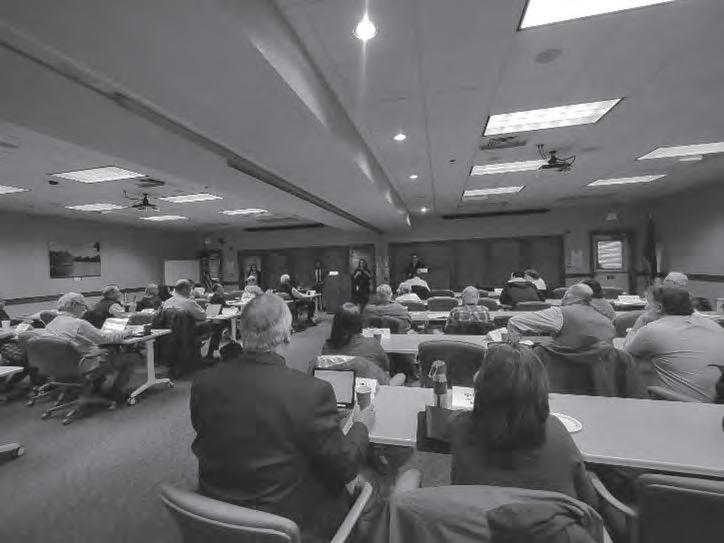
The General Administration and Governance policy committee’s subject areas include local authority and efficiency; right-to-know law; elections; labor and employment; and substance use, prevention and response. This is the perfect committee for those of you who care about changes to the right-to-know law, ranked choice voting and other election issues, employer-employee relations, and subjects such as cannabis legalization.
The Finance and Revenue policy committee’s subject areas include property taxes and related revenues; state aid and non-property tax revenues; the New Hampshire Retirement System (NHRS); and education funding. In other words, if you’re interested in municipal finance, the state retirement
system, property taxation, or local option credits and exemptions, this is the committee that recommends policy for those areas.
The Infrastructure, Development, and Land Use committee’s subject areas include energy, environment, and sustainability; water resources protection, control, and management; solid waste management; housing; land use; information technology, communications, and cybersecurity; transportation; economic development, recovery, and vitality. If you care about infrastructure, housing and land use, energy policy, or landfills, this is the committee for you. After each of these committees does its work over the course of three-to-five meetings in the spring, their recommendations are sent out to our full membership in preparation for the full policy conference. Over the course of the summer, we receive additional proposals from members and members consider the proposed changes to our legislative policies.
In September, everyone comes together for breakfast and the meeting of the full policy committee. Our aim is for all 234 members to send a representative to that conference. That conference is a one morning affair modeled after, unsurprisingly, a town meeting. A moderator (the chair of our board of directors) oversees the debate and discussion over the proposed changes to our legislative policies while our members make motions, including amendments, to decide what our legislative policies should be for the 2025 – 2026 legislative session. And the whole process STARTS WITH YOU!
While you consider your plans for the gnarly weather of early spring, consider how helpful your perspective on the issues facing municipalities could be for setting NHMA policy. We’ve championed local control since our inception not only because it’s the right thing to do, but because we recognize that New Hampshire is comprised of 234 unique communities, each with a little different flavor. There are many issues that unite us, but each community faces its own unique set of circumstances and deals with issues in its own way. That variety is the spice of life in the Granite State.
We want to be sure that we reflect that panoply of thought
32 NEW HAMPSHIRE TOWN AND CITY www.nhmunicipal.org
at the statehouse and we need your help to do it. We need you to volunteer to sit on our policy committees so that we get input from every part of the state. The challenges faced by the Lakes Region are different than those faced by the Seacoast. The North Country has different concerns than the Monadnock. The biggest cities and the littlest towns have different needs. By your voices combined, NHMA policies reflect the needs of all.
If you already know that you want to volunteer, reach out to us at 603-224-7447 or governmentaffairs@nhmunicipal.
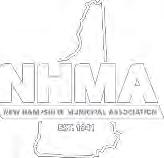
org. We’ll make sure to let you know when we schedule organization day and get your preference for committee assignment. If you need some time to think about it, that’s okay, too. We’ll be formally soliciting volunteers in a couple of months, but we wanted to make sure that this once-ina-biennium volunteer opportunity was on your radar with plenty of time to spare.
Natch Greyes is the Government Affairs Counsel with the New Hampshire Municipal Association. He may be contacted at 603.224.7447 or at governmentaffairs@nhmunicipal.org.
We represent towns and ci�es throughout the state and bring value to our clients through decades of experience and adhering to the budgetary constraints under which municipali�es operate. We emphasize preven�ve and �mely legal counsel to our clients with a view toward avoiding problems that result in li�ga�on.

33 www.nhmunicipal.org SEPT/OCT 2023
Special counsel services include: Telecommunica�ons Appellate Water U�lity & Infrastructure Tax Assessment Labor & Employment Growth Control Police Eminent Domain Li�ga�on Land Use & Planning Environmental Also available for conict counsel services OFFICES IN EXETER, PORTSMOUTH, MEREDITH & CONCORD, NEW HAMPSHIRE WWW.DTCLAWYERS.COM DONAHUE, TUCKER & CIANDELLA, PLLC E‐mail: info@DTCLawyers.com Toll Free: (800) 566‐0506 For inquiries please contact Christopher Boldt or Sharon Somers If you’re not getting it, you’re not getting it. Don’tbecaughtwithoutit! NewsLink gives you all the latest information on upcoming workshops, webinars and other training events. This bi-weekly electronic newsletter is the most comprehensive resource for local government officials in New Hampshire. To get all the news you can’t afford to miss, subscribe to NewsLink at www.nhmunicipal.org. The E-newsletter of the New Hampshire Municipal Association If you're not getting it, you're not getting it. Don't be caught without it! To get all the news you can't afford to miss, subscribe to NewsLink at www.nhmunicipal.org
gives
the latest information
webinars
bi-weekly electronic newsletter
most comprehensive
ernment
NewsLink
you all
on upcoming workshops,
and other training events. This
is the
resources for local gov-
officials in New Hampshire.
HB 321: Sealed Meeting Minutes Procedure Changes
 By Natch Greyes, Government Affairs Counsel
By Natch Greyes, Government Affairs Counsel
Pursuant to RSA 91-A:3, III, minutes of non-public sessions “may be withheld” (commonly called “sealed”) “until, in the opinion of a majority of members, the [reason for withholding the minutes] no longer apply.” The question that naturally arises out of statutory provision is what obligation the public body is under to evaluate whether the reason for withholding the minutes continues to exist.
In the past, the practical reality was that sealed minutes would either be reevaluated upon the receipt of a records request from someone or sealed for a certain amount of time (subject, presumably, to a reevaluation upon the time coming to a close). Yet, RSA 91-A:1 stated that the “purpose of this chapter is to ensure both the greatest possible public access to the actions, discussions and records of all public bodies, and their accountability to the people.” How, then, could the best option be to wait until the public decided that it wanted access for those records to become public? A better practice would be for the government to take proactive steps to ensure that minutes are withheld for only as long as the circumstances leading to their withholding apply.
In 2023, HB 321 was introduced to address the discrepancy between best practice and common practice as the result of a coalition of stakeholders coming together to discuss where the right-to-know law could be improved. In short, HB 321 adds statutory language that tells public bodies to either develop their own process to review minutes or to follow a statutorily created process.
In developing their own process, public bodies have wide discretion in deciding how to structure their review of sealed minutes. Some may choose to assign one board member the task of reviewing the minutes and making a recommendation, others may choose a subcommittee, still others may choose to review all sealed minutes as a whole committee. Similarly, boards may choose to review all sealed minutes or only some each year. Thus, a board may stagger the review process so that it does not interfere with other board business.
In the absence of adopting its own process, a public body must follow the statutorily created process. That statutory process requires a review of sealed minutes “no more than 10 years from the last time the public body voted to prevent the minutes from being subject to public disclosure.” The statutory process also includes a 10-year grace period. In other words, if your board has minutes that were sealed more than 10 years ago and your board hasn’t reviewed them since, you have 10 years after the law goes into effect to review those minutes and decide whether to keep them sealed or not.
Public bodies ought to take advantage of the 10-year grace period and start evaluating what, if any, review process they would like to develop. Once that determination has been made, it is important for boards to follow those processes and teach new board members about the legal requirement to review sealed minutes and the locally adopted process designed to comply with that requirement.
While, in most cases, there is no penalty for disclosure of information that could be withheld from public disclosure as our law begins by assuming that any information held by the government is subject to disclosure, there are a handful of circumstances where disclosure is not in the best interests of anyone. Private information, such as social security numbers, statutorily protected information, such as whether someone is receiving municipal welfare, and information that, if disclosed, could result in harm to persons or property, such as information about access points to public water systems, ought to continue to be carefully protected from disclosure. The best way to do that is to ensure that future boards need not rush through a review process to protect that type of information from becoming public. Instead, starting now can ensure that the citizens of the state of New Hampshire can “know what the government is up to” while also ensuring that information that was rightfully protected from public disclosure and ought to continue to be protected from public disclosure remains protected.
Natch Greyes is the Government Affairs Counsel with the New Hampshire Municipal Association. He may be contacted at 603.224.7447 or at governmentaffairs@nhmunicipal.org.
34 NEW HAMPSHIRE TOWN AND CITY www.nhmunicipal.org
Court Update
Now available online:
May 2023
By Stephen C. Buckley, Legal Services Counsel and Jonathan Cowal, Municipal Services Counsel
Where Town Ordinance Combined a Special Exception Process with Excavation Permitting under RSA 155-E, with the ZBA Acting as Regulator, Appeals were Governed by the 10-Day Motion for Rehearing Deadline in RSA 155E:9, Juliana Lonergan & a. v. Town of Sanbornton, New Hampshire Supreme Court Case No. Belknap 2022-0142. 05/31/2023
Keeping Excess Profit from Sale of Tax-Deeded Property Violates the Takings Clause of the Fifth Amendment; a 10% Assessed Penalty Imposed under RSA 80:90, I (f), May be an Excessive Fine under the Eighth Amendment of the US Constitution, Tyler v. Hennepin County, Minnesota, et al. United States Supreme Court Case No. 22-166, 05/25/23
Superior Court Did Not Err when it Dismissed the Plaintiffs’ Untimely Zoning Appeal, and when it Concluded that the Planning Board made a Sufficient Regional Impact Determination, Richard Anthony & a. v. Town of Plaistow, Supreme Court of New Hampshire Case No. Rockingham 2021-0410, 05/16/2023
Under the Definitions Provided by the Conway Zoning Ordinance, Short-term Rentals are Allowed in the Residential District, Town of Conway v. Kudrick, New Hampshire Supreme Court Case No. 2022-0098, 05/02/2023
April 2023
NH Supreme Court Reverses Superior Court’s Decision Upholding Conditions Placed on Church’s Special Exception Regarding Occupancy & Hours of Operation; Affirms Superior Court’s Decision to Dismiss Constitutional Claims and Grant Wetlands Special Exception, Christ Redeemer Church v. Town of Hanover; Jeff Acker & a. v. Town of Hanover, New Hampshire Supreme Court Case Nos. 2021-0349 and 2021-0356, 04/14/2023
When Granting Waiver of a Conditional Use Permit Under Innovative Land Use Control, HAB Ruled Party Seeking Waiver Must Demonstrate the CUP Regulation Creates an Unreasonable Hardship; HAB Asserted it has Authority to Issue Declaratory Judgements, James Logan v. Town of Candia, Housing Appeals Board Case Number PBA-2022-28, 04/10/2023
608 Chestnut Street
Manchester, NH 03104 Phone: (603) 622-7070
Fax: (603) 622-1452
C ERTIFIED PUBLIC A CCOUNTANTS
“Experience Counts”
We want to be more than just your auditors! We know New Hampshire governments Your needs come rst at Vachon Clukay & Company PC, so we’ve structured ourselves to fulfill all of your service needs. We provide the following services:

Auditing • Government Auditing Standards (GAS) Compliance
Single Audits (Federal Compliance Audits) • ACFR Reporting
MS-535 Reporting • Agreed-upon Procedures

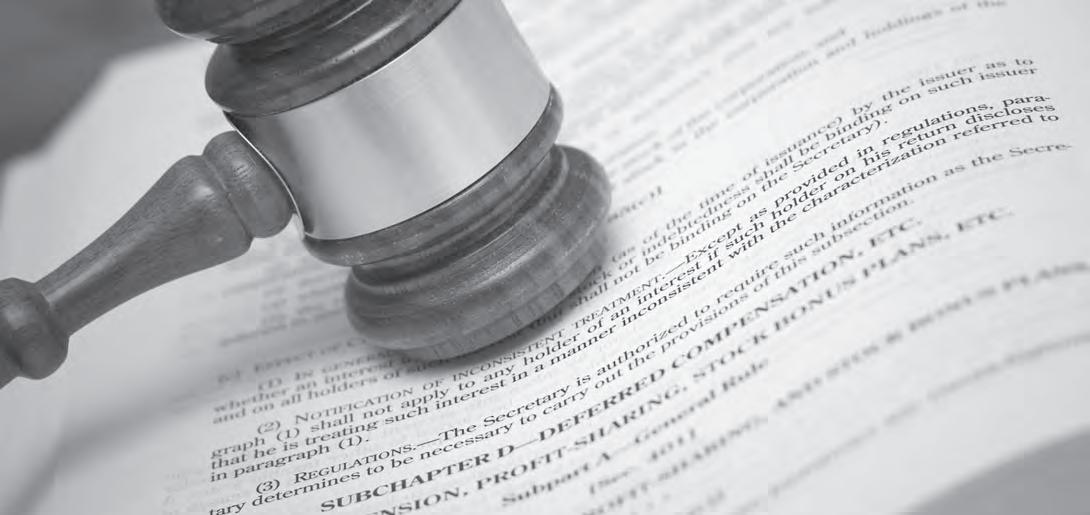
Taxes • Reviews and Compilations
We want to be part of your team. Contact: Jarad J. Vartanian, CPA
35 www.nhmunicipal.org SEPT/OCT 2023
The HR REPORT
DiChiara v. Town of Salem: Federal Court Re-Affirms Absolute Immunity from Defamation Claims
By Hannah Devoe, Associate Attorney
By decision dated July 12, 2023, the New Hampshire Federal District Court has re-affirmed that a person may not be sued for defamation if they bring concerns regarding potential employee criminal conduct to the attention of prosecuting authorities.
As background, it is a well-established New Hampshire common-law doctrine that formal and informal statements made to prosecuting authorities are entitled to absolute immunity from claims of defamation. McGranaham v. Dahar, 119 N.H. 758, 770 (1979). In Dahar, the Court held that “statements made in the course of judicial proceedings are absolutely privileged from civil actions, provided they are pertinent to the subject of the proceeding.” The Court explained that this rule is necessary “to encourage participants in litigation, parties, attorneys and witnesses, to speak freely.” The Court held that the scope of absolute immunity included statements made to police or prosecutors, even if they do not result in criminal charges. The Court held that “potential harm to a person’s reputation is far outweighed by the substantial interests of society in encouraging citizens to report suspected criminal activity to the appropriate legal authorities, and to cooperate fully in investigations.”
The expectation to the absolute immunity standard arises when the statements made in judicial proceedings are not “pertinent to the subject of the proceeding.” The Court held that “there is no reason to protect one who uses the form of a judicial proceeding merely as a pretext for circulating defamatory material.” Statements made are immune unless they are not pertinent to the issue at hand.
The absolute immunity issue was recently revisited by the federal court in DiChiara v. Town of Salem. In this case, Town officials informed the Attorney General’s office of their concern that DiChiara, a Town police officer, and
other Town employees may have engaged in fraudulent activity in an effort to receive workers’ compensation benefits. The Town provided the Attorney General with information regarding several employee workers’ compensation claims. No criminal charges resulted.
DiChiara sued the Town for defamation arising from the statements made to the Attorney General. Additional claims resulted from the Town providing the Attorney General with DiChiara’s workers’ compensation and medical records.
Based on these events, DiChiara filed a lawsuit against the Town. The Federal Court ruled that the Town’s alleged “meritless and defamatory accusations of criminal fraud” to the Attorney General’s officer were not actionable. The court noted that, even if these statements were actually defamatory, which remains a question the Court need not resolve, “those statements are subject to an absolute privilege under New Hampshire law and, therefore, cannot form the basis” of a defamation claim.
Relying on the earlier Dahar decision, the Court explained that the same absolute immunity from defamation that exists during the pendency of a judicial proceeding also applies when a person seeks to initiate a criminal investigation. The Court found that the Town had a reasonable belief that some employees may have committed fraud. The Court held that because of that reasonable belief, the Town could not be found to have engaged in defamatory conduct when seeking the assistance of an investigative agency.
The Court also found no merit in the claims arising from disclosure to the Attorney General of DiChiara’s medical records. The Court found that the Town had lawful possession of those records. Using those records for a lawful
36 NEW HAMPSHIRE TOWN AND CITY www.nhmunicipal.org
purpose—to support allegations of potential criminal conduct—does not constitute an unlawful seizure or misuse of those records.
The existence of absolute immunity should be of great comfort to municipal employers, who occasionally obtain information suggesting that an employee has engaged in criminal conduct. Even with absolute immunity protections, employers should




make sure that there is a reasonable, good faith basis for believing that criminal conduct may have occurred before reporting to the police or prosecutors. Employers should exercise care that they are not acting solely based on rumor or innuendo and that there is some factual support for the allegation. When making a report, employers should stick to the issue at hand, and not submit gratuitous, unnecessary information unrelated to
the alleged criminal conduct.
This is not a legal document nor is it intended to serve as legal advice or a legal opinion. Drummond Woodsum & MacMahon, P.A. makes no representations that this is a complete or final description or procedure that would ensure legal compliance and does not intend that the reader should rely on it as such.

37 www.nhmunicipal.org SEPT/OCT 2023
AVITAR ASSOCIATES OF NEW ENGLAND, INC. Municipal Services Company 150 Suncook Valley Highway | Chichester, NH 03258 | 603-798-4419 www.avitarassociates.com
1986,
Associates
services, software applications,
Hampshire municipalities. Avitar’s Assessing & Mapping Ser vices • Revaluations • Defense of Values • Current Use Taxes • Exemptions • Computerized MS-1 • Annual Pickups • Value Updates • Timber Taxes • Tax Map Updates • Data Verifications Avitar’s Software Applications • Assessing • Tax Collect • Building Permit • Clerk/Dog Licensing • Utility Billing • Motor Vehicle • Internet Data Hosting • MAAP Certification • Online Tax Kiosk • MV Price Quotes
Since
Avitar
has been providing a wide range of assessing
and unparalleled customer support to New
CMA pursue excellence ENGINEERS PORTSMOUTH, NH | MANCHESTER, NH | PORTLAND, ME Transportation | Water& Wastewater | Solid Waste | Structural www.cmaengineers.com
ASSOCIATION OF REGIONAL PLANNING COMMISSIONS
This segment is another in a series highlighting NHARPC’s efforts to provide education on planning-related topics.
Building Resilience Against
Global temperatures are rising. According to the National Oceanic and Atmospheric Administration, Earth’s average temperature has risen by about 2°F since 1880. Rates of warming are increasing, and the 10 warmest years in the historical record have all occurred since 2010. This warming allows the atmosphere to hold more water, which results in more intense rainfall and flooding events. It also results in warmer oceans releasing latent heat, which is the energy source driving hurricanes and coastal storms. In the face of these climate shifts, New Hampshire communities are facing steep costs and repetitive losses from 100-year storm events that may in fact occur multiple times per decade.
Regional planning commissions play a crucial role in facilitating collaboration and assisting communities as they tackle complex challenges associated with today’s extreme precipitation events and prepare for the climate threats of the future—with concerns ranging from inland flooding to coastal storm surges and groundwater rise. This article explores key tools and on-the-ground actions taking place today across four regional planning commissions working to foster greater resiliency in New Hampshire communities.
Managing Stormwater to Address Inland Flooding
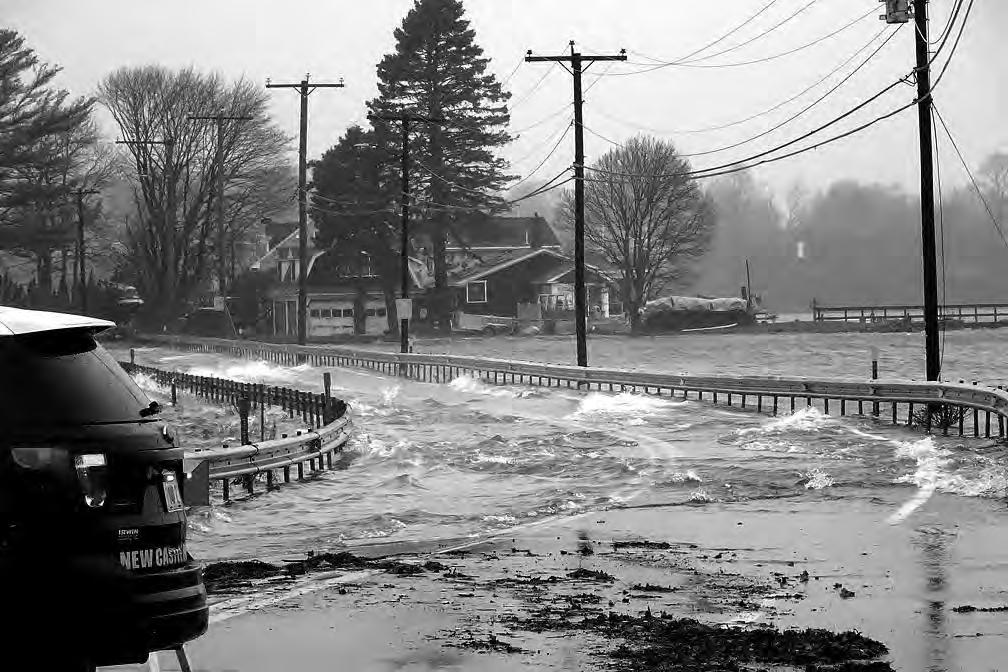
This past July, the same heavy rainfall that overwhelmed Vermont impacted several NH communities, causing widespread road closures and destroying roads, farmland, and public infrastructure.
For NH inland communities in the Upper Valley and Lake Sunapee regions, road agents and highway departments are fully aware of the threat of higher intensity storms. These municipal staff work on the front lines to manage water quantity and water quality challenges. They care for all types of public drainage networks including roadside ditches, drainage pipes, and stream crossing structures, all of which comprise the foundational elements of stormwater infrastructure.
The Upper Valley Lake Sunapee Regional Planning Commission (UVLSRPC) is collaborating with communities on two key adaptation efforts. First is the optimization of maintenance, with structures checked and cleared before any major rain event, as well as assets monitored year round to ensure good
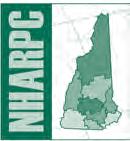
38 NEW HAMPSHIRE TOWN AND CITY www.nhmunicipal.org
NEW
HAMPSHIRE
Flooding on New Castle Causeway NH 1B, Courtesy the RPC, ©Jim Cerny
Hard Road to Travel Hybrid Workshop!

Attendees will receive an electronic copy of NHMA's 2022 updated publication, A Hard Road to Travel: New Hampshire Law of Local Highways, Streets, and Trails.

Additional materials such as the PowerPoint presentation will also be distributed electronically. No print outs of the materials or hard copy of the publication will be provided.

39 www.nhmunicipal.org SEPT/OCT 2023
conditions are maintained. Communities are purchasing new equipment to support this maintenance, such as truckmounted leaf blowers and culvert cleaners. The second measure addresses the upsizing of pipes and bridges to handle higher flows, which has become the standard for all replacement projects. While these efforts by municipal staff have undoubtedly reduced the severity of flooding this summer in our communities, unfortunately, damage from flooding still happens and much work still remains to be done.
Strategies involving diverse stakeholders are needed to better adapt to higher amounts of rain over shorter periods of time. For example:
• Private landowners can address stormwater management on their own site and not send additional runoff downstream. Voluntary resources are available from NHDES SOAK up the Rain program.
• Municipal land use regulations, including zoning and site plan review, can include a zero tolerance for additional volume and/or rate of stormwater going off-site.
• Municipal regulations and Planning Boards can encourage reductions in impervious surfaces, support new green infrastructure technologies, and maintain riparian buffers near water bodies.
• All stakeholders can make the conservation and restoration of floodplains, riparian zones, and other natural areas a top priority, as this represents the most resilient and costeffective strategy for managing stormwater.
UVLSRPC is expanding its stormwater planning services to support these efforts. A series of public education events will be hosted this fall to provide homeowners with the reason and resources to adjust their property management. In addition, the Commission is working closely with many municipal staff to advance planning for stormwater in regulations and structural design. Learn more at www.uvlsrpc. org/projects/stormwater/.
Shaping Public Understanding of Sea Level Rise to Inform Local Policy
In planning for future sea level rise (SLR), The Rockingham Planning Commission (the RPC) completed the Seacoast Transportation Corridor Vulnerability Assessment (STCVA) to identify areas susceptible to future flooding due to SLR
and to demonstrate how higher sea levels might impact the function of the road network and access to the Seacoast.
Recent storm events such as the December 23, 2022 storm remind us of our existing vulnerabilities to extreme weather and provide a glimpse into a warmer, wetter future with rising sea levels. The combined high tide and nearly threefoot storm surge on December 23 correlated closely to the four-foot SLR Scenario assessed in the SCTVA study.
During the December 23 storm, more than 20 roadways identified in the STCVA experienced flooding levels like the predicted flooding with a future sea level rise of between three and four feet. The RPC documented the flooding of December 23 in a Story Map entitled “The Future is Now” (https://arcg.is/19WvKj) to demonstrate how today’s storm events offer a glimpse of a warmer future with higher sea levels. Maps and images show how communities could experience twice daily high tides that might regularly overtop existing infrastructure, and where storm conditions could push flooding into higher ground.
The December 23 storm's impacts revealed the most vulnerable locations of our infrastructure and showed us which
40 NEW HAMPSHIRE TOWN AND CITY www.nhmunicipal.org
EXTREME WEATHER from page 38 www.underwoodengineers.com civil & environmental engineering PROBLEM SOLVING It’s our strong point PROBLEM SOLVING It’s our strong point www.underwoodengineers.com civil & environmental engineering PROBLEM SOLVING It’s our strong point www.underwoodengineers.com & environmental engineering PROBLEM SOLVING It’s our strong point www.underwoodengineers.com www.underwoodengineers.com civil & environmental engineering PROBLEM SOLVING It’s our strong point www.underwoodengineers.com civil & environmental engineering PROBLEM SOLVING It’s our strong point www.underwoodengineers.com civil & environmental engineering PROBLEM SOLVING It’s our strong point www.underwoodengineers.com civil & environmental engineering PROBLEM SOLVING It’s our strong point
The Right-to-Know Law Workshop on

Meetings and Records

9:00 am—1:00 pm
Thursday, October 12, 2023

25 Triangle Park Drive, Concord
$65 in -person; $55 virtual
41 www.nhmunicipal.org SEPT/OCT 2023
Visit Calendar of Events to register: www.nhmuncipal.org
locations are most likely to be flooded by high tide on a daily basis. These insights can help decision-makers better plan and implement needed infrastructure improvements that will both mitigate the storm events of today and maintain access to the coast in the future.
Protecting communities against the impacts of today's storms and future sea level rise requires incorporating climate change into infrastructure planning and adopting more innovative and stringent floodplain management policies. Building on the STCVA as well as the NH Coastal Flood Risk Guidance, the RPC is working with communities to incorporate flood risk projections into local land use policies. In 2023, after working with the RPC, the Town of Exeter voted to adopt “Advisory Sea Level Rise (SLR) Risk Areas” into its Zoning Ordinance to show which areas in town are projected to be impacted by four feet of sea level rise plus storm surge. The purpose of the SRL Risk Areas is to educate property owners and developers of the potential future risk to specific properties in town and encourage any construction within the SLR risk areas to adhere to stricter development standards.
Additionally, The RPC is currently working with the Town of Hampton to adopt higher floodplain management standards into its zoning ordinance, including more stringent construction and design standards for buildings in the special flood hazard area that account for today's routine flooding and future sea level rise.
The RPC is also working with the Town of Hampton in partnership with the NH Department of Environmental Services to develop a town-led process for acquiring FEMA Hazard Mitigation Grant Program funding on behalf of property owners for structure
elevations and/or voluntary buyouts. The project involves designing a program that supports residents looking for options to reduce flood risk to their properties and streamlines the process of obtaining federal funding to elevate or relocate.
Applying Federal Mitigation Guidance to Local Planning

On April 19, 2023, a new Local Mitigation Planning Policy Guide, released by the Federal Emergency Management Agency (FEMA), went into effect. This updated guidance applies to all local governments that develop, update, and implement local mitigation plans. A separate State Mitigation Planning Policy Guide was released in conjunction with the local policy guide.
Strafford Regional Planning Commission (SRPC), like many of the other planning commissions in the state, provides municipalities with professional services to prepare and update local hazard mitigation plans. Last fall, upon receiving a grant through Homeland Security and Emergency Management (HSEM), SRPC began the update process with five communities, including Durham, Middleton, Milton, Nottingham, and Strafford.
The Town of Durham was the first community to utilize the new guidance. As such, SRPC overhauled the plan template to adequately address the required changes, including improvements to the planning process to incorporate a broader range of sectors, community lifelines, and communitybased organizations that support underserved communities; inclusion of climate change in the risk assessment; a renewed focus on building codes and land use regulations; and the consideration of both current and future risks. Durham was uniquely positioned to
address the new climate change requirements as the Town had recently partnered with SRPC to develop a Climate Action Chapter to the Master Plan, as well as a Vulnerability and Planning Study on Sea Level Rise Impacts on Groundwater. The master plan provides a summary of the most recent climate science, identifies local impacts, and develops a comprehensive list of recommendations that address climate-related issues. Additionally, SRPC, in partnership with staff from the University of New Hampshire and New Hampshire Sea Grant, conducted an extensive outreach campaign that included stakeholder input sessions and opportunities for residents to provide input on prioritizing actions.
The purpose of the groundwater rise project was to determine the susceptibility to groundwater rise and saltwater intrusion for public and private drinking water supplies, private septic systems, contaminated sites, stormwater infrastructure, utilities, roads, and municipal critical facilities in lowlying areas. The final report and associated Groundwater Modeling Maps improves the Town’s understanding of
42 NEW HAMPSHIRE TOWN AND CITY www.nhmunicipal.org
EXTREME WEATHER from page 40
Mascoma River flooding, Courtesy UVLSRPC
future groundwater rise vulnerabilities and guides decision-makers on future capital improvement projects that may be necessary to reduce risk. These resources are instrumental planning mechanisms for improving resiliency and were used extensively during the hazard mitigation update.
Leveraging Roadway Adaptation as an Entry Point for Climate Planning
The functionality and reliability of the transportation network is a priority issue for every community, and the Southern NH Planning Commission (SNHPC) has found that the topic of roadway adaptation offers a strategic entry point for bringing stakeholders together to address pressing concerns. The Commission is applying a practical lens to gather insights from fellow RPCs, promote key tools and resources, and develop a roadway adaptation toolkit that will help lay the foundation for advancing broader, multi-faceted climate goals.
In 2020, SNHPC released a Regional Vulnerability Assessment (RVA) that systematically documented the status of the region’s roadway stream crossings using available climate data. The RVA examined more than 1,600 culverts and bridges to develop a priority list of the most vulnerable stream crossings, and the analysis was integrated into an interactive GIS map that is used to inform decision-making around infrastructure improvements. Today, the SNHPC team is building upon the RVA and expanding the analysis by looking beyond bridges and culverts to understand vulnerabilities related to steep slopes and flood-prone areas. The Commission is also applying a corridor-level lens to support a more integrated approach to regional transportation planning, since upgrades at one site can have downstream
impacts for other roads and other communities.
In April 2023, SNHPC hosted an inaugural regional climate planning workshop that brought together more than 40 municipal officials, regional stakeholders, and state and national experts to discuss key opportunities for adapting our roadways in the face of climate change. The conversation touched upon a wide array of community priorities. As one workshop participant explained, “It’s essential to connect these strategies together to bake in resilience. We need to inventory our vulnerable assets, link that with climate data to get real-time updates, and consolidate information to inform the design standards, systems, and processes that we’re using every day.”
SNHPC is now integrating technical findings and collaborator feedback into a roadway adaptation toolkit scheduled for release this fall. Featuring corridor-level data and a checklist of roadway adaptation strategies, the toolkit is intended to jumpstart critical conversations about adaptation needs to help identify priorities and practical implementation opportunities at the local level.
Since climate impacts don’t recognize municipal boundaries, SNHPC will continue embracing its role as a convener—supporting our local communities, sharing practical tools, and collaborating with fellow RPCs and state leaders to take coordinated action in the face of climate change.
These stories capture important examples of the climate-related challenges New Hampshire is facing today. Yet communities are facing many other concerns, ranging from heat waves and drought, to ecological shifts impacting agriculture and tourism economies.
Historic data is no longer a reliable predictor of future risk, and it is essential to recalibrate policies and systems at federal, state, and local levels to align with updated climate forecasts. By collaborating across sectors, regional planning commissions can help coordinate proactive solutions that address the unique priorities in our communities – whether updating flood models, revising land use plans, redesigning roadways, or pursuing green infrastructure innovations to manage stormwater. The time to act is now, and regional planning commissions are here to help.
Interested in learning more about what is happening in your region to address climate challenges? Visit the NH Association of Regional Planning Commissions to connect with the regional planning commission in your area
43 www.nhmunicipal.org SEPT/OCT 2023
WE CHECK ALL YOUR BOXES Grant Administration Assistance Land Surveying Transportation Engineering Structural Engineering Environmental Compliance Construction Administration
Pavlicek Retires After 30 Plus Years of Public Service
walks in this section of the community which has increased pedestrian access and personal interactions.
Dennis Pavlicek, who has served as the Town of Newbury’s Town Administrator since 1995, recently retired following 30 plus years of local government service.
Dennis became town administrator in 1995 following a time of tragedy and turmoil. In 1993, a disgruntled taxpayer opened fire in the Newbury Town Hall, killing two female town employees, before eventually dying from a self-inflicted gunshot wound. Former Newbury town administrator, Carol Hockmeyer, was also severely injured. The perpetrator, John Albro, the son of a Newbury selectman, had a reported longtime feud with the town.
For the next six months after the incident, Pavlicek, who was working with the New Hampshire Department of Revenue Administration (DRA) in Concord, and multiple other DRA employees, were charged with working at the Newbury town offices while they were trying to get back on their feet. After months of support and staff reconstruction, the town eventually recovered and Pavlicek went back to his old DRA position. However, there were rumblings that the town administrator position would be opening up. Sure enough, it did and Pavlicek applied immediately. The rest is now history. Pavlicek got the job! Fast forward many years later and one can see that Dennis was the right person at the right time for this difficult challenge.
A major achievement during Pavlicek’s tenure was the planning and development of Center Newbury as the civic center of the community. Pavlicek guided the development of side-
According to the Town’s 2017 Master Plan, “At times, Newbury residents and property owners have reported feeling disconnected. This may be a factor of the topography and development patterns of Newbury which have created numerous small neighborhoods that are not easily interconnected and remain relatively isolated. In recent years, strides have been made towards developing a stronger sense of community. These efforts have focused on making Newbury Center more of a focal point for community services and facilities and communicating through a town newsletter and website. An updated and expanded town website has been developed to serve the community and aid communication and engagement efforts in Newbury.”
Improvements in Center Newbury include the Veterans Memorial, Veterans Hall, the Playground, the restoration of Center Meeting House, the Caboose & Information Center in Bell Cove, acquisition of additional land and expansion of the town beach, improvements to the town Docks, acquisition of the former and refurbished railroad station, and acquisition of the Bald Sunapee and Camacho properties all contribute to making Center Newbury more of a focal point for the community.
Dennis was lucky to have the strong support of his staff. Dennis’s leadership style was one of delegating responsibilities to his staff and employees as he recognized early in his career that they are the backbone of delivering community services.
According to Pam Bryk, administrative assistant who has served under Dennis for over 11years, “Dennis has always put the needs of the Newbury residents first. He strives to keep our tax rate low. As a boss, Dennis is very considerate and funny. One thing you might not know about Dennis is that he is very funny. He has quite the sense of humor!”
Another one of Pavlicek’s milestone achievements was starting the town’s Old Home Day in 2005, an event that has seen significant growth over the years. The summer event now features everything from street performers to circus groups to food trucks, and routinely attracts hundreds of
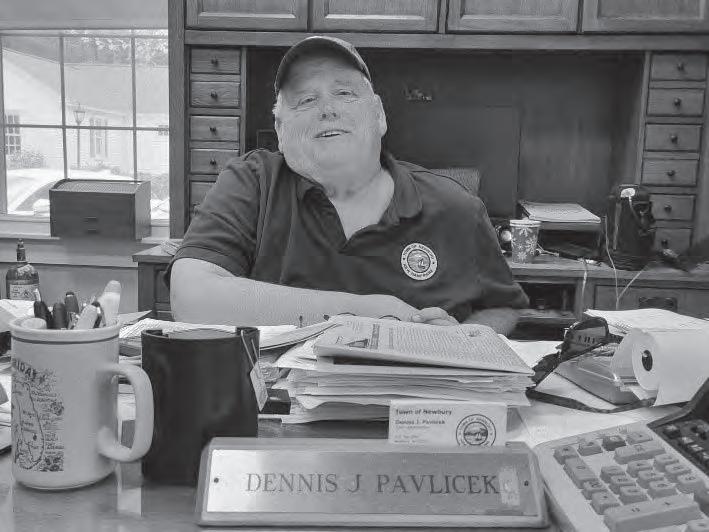
44 NEW HAMPSHIRE TOWN AND CITY www.nhmunicipal.org
residents every year to celebrate the town’s history and beauty. The highlight of the event is the fireworks show on Lake Sunapee, which attracts more than 1,000 residents yearly.

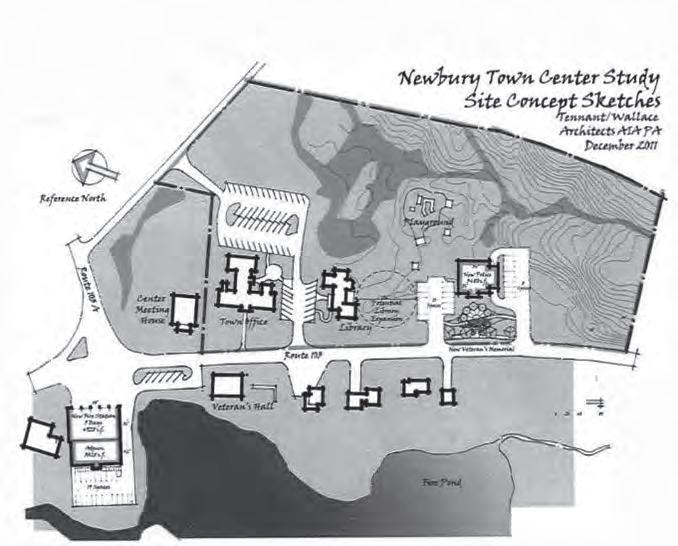
Pavlicek also played an important leadership role in NHMA’s history and served on the Local Government Center’s (LGC) Board of Directors from 2005 to 2013. In 2013, the LGC and its affiliated entities, HealthTrust, Property & Liability Trust (PLT), and NHMA, were organizationally restructured. Dennis went on the serve on the PLT’s Board of Directors before this entity was finally dissolved in 2016.
Every year, Dennis was always among the first members, if not the first, to register for our Annual Conference and Exhibition. But Dennis did more than that, he would close down the Newbury town offices for the day so that staff employees could travel to Manchester and participate in a full day of education, training and networking.
After his retirement in August, Dennis hopes to move somewhere to North Carolina in the Great Smoky Mountains and live out his last years enjoying the beauty of these ancient mountains. Best of luck to you, Dennis, and thank you for your many years of service and dedication to the betterment of municipal government in the Town of Newbury and the State of New Hampshire.
$100.00 - In-person $70.00 - Virtual
$100

45 www.nhmunicipal.org SEPT/OCT 2023
Conceptual drawing of “Center Newbury” from 2017 Master Plan
Left, Dennis with the delegation from the Town of New London, Town Administrator Kim Halquist and Select Board Chair, Janet Kidder, at his retirement party.
Legal Q and A
The Right-to-Know Law Ombudsman – an Update
 By Stephen C. Buckley, NHMA Legal Services Counsel
By Stephen C. Buckley, NHMA Legal Services Counsel
Thomas F. Kehr, New Hampshire’s Right-to-Know Law Ombudsman, officially opened his office to receive complaints on January 27, 2023. The first filing he received was within hours of his being sworn in. The Ombudsman goes by the acronym RKO.
The RKO statutes contemplate the adoption of administrative rules governing the process for handling complaints. However, since the RKO had to commence processing complaints the moment he was in office, on an interim basis he has issued a procedural order temporarily implementing NH Admin Rules Jus 800, Model Rules of Practice and Procedure; RKO General Procedural Order 1 – pre-Rulemaking dated March 17, 2023. That order along with other notices issued by the RKO can be found at the following website address: https://www.sos.nh.gov/administration/office-rightknow-ombudsman. At that website the RKO publishes Notices of Hearings, along with other notices, resources and an FAQ. The RKO also posts notices on the RKO bulletin board outside his office; on the welcome board on the first floor of the State House Annex and on the bulletin board in the State House basement, near the cafeteria.
When the RKO receives a complaint along with the filing fee he sends the parties an explanatory procedural letter. That letter delineates the current procedural rules under Jus 800, recites the statutory complaint process found in RSA 91-A:7-b, reminds the target of the complaint the duty to reply within 20 days, and requests both parties to file appearances.
Since January the RKO has received 12 complaints. Here is a list of those matters as of July 20, 2023, along with a brief summary of the status or disposition by the RKO;
2023-001: In Re: NH Department of Transportation-1: Issue: Did NHDOT comply with RSA 91-A:4 and pro-
vide records requested by the claimants Stephen and Patrice Rasche. Still pending as of July 20th.
2023-002: In Re: Town of Newmarket - 001 (Clay): Issue: Alleged failure to properly respond to various requests by claimant Jeffrey Thomas Clay. Dismissed with prejudice.*
RKO 2023-003 In Re: Town of Newbury -001 (Billado): Issue: Whether the Town complied with the claimant’s request for records under 91-A. Hearing held with decision issued (summarized below).
RKO 2023-004 In Re: Town of Milford – 001 (Koko): Issue: Whether reason for emergency meeting in must be reflected in meeting minutes. Decision issued (summarized below).
RKO 2023-005 In Re: Town of Newmarket -002 (Clay): Issue: Alleged failure to properly respond to various requests by claimant Jeffrey Thomas Clay. Dismissed with prejudice (settled).**
RKO 2023-006 In Re: Town of Deering -001 (Whisman): Issue: Alleged failure to provide recording of public meeting. Hearing held with decision issued (summarized below).
RKO 2023-007 In Re: Town of Kensington - 001 (Brandano): Alleged failure to respond to a document entitled “Remonstrance and Trespass,” and alleged failure to provide governmental records. RKO was going to rule on motions to dismiss by the town on or after July 21, 2023.
CONSOLIDATED. RKO 2023-008 In Re: Amherst School District Ways & Means Committee -001 (Hanson-Amherst Education Association): Issue: Alleged failure to properly respond to request for meeting and Zoom
46 NEW HAMPSHIRE TOWN AND CITY www.nhmunicipal.org




47 www.nhmunicipal.org SEPT/OCT 2023 THANK YOU!
Supporters The NHMA would like to thank its supporters (as of August 10, 2023) who value their partnership with the 234 municipalities in New Hampshire. Our online advertising supporters help provide valuable financial support, ensuring our ability to provide important educational and training opportunities. Browse our online Municipal Marketplace to products and services for cities and towns. JSJ Auctions, LLC Municipal Resources, Inc. Santander Bank, N.A. Three Bearings Fiduciary Advisors, Inc. CheckmateHCM Drummond Woodsum Pare Corporation Citizens Vision Government Solutions MHEC
Online Advertising
minutes of a meeting on an unspecified date. Still pending.
RKO 2023-009 In Re: Amherst School District Ways & Means Committee -002 (Ballard): Issues: Failure to identify motion maker in minutes and concern about committee business being conducted outside of a properly noticed meeting. On July 18, the RKO issued order dismissing case with prejudice by reason of settlement. *
RKO 2023-10 In Re: City of Rochester -001 (Beaudoin): Claimant city council member seeking ruling on whether nonpublic sessions were proper. On June 8, 2023 this case was dismissed with prejudice by the RKO.*
2023-011 In Re: NH Department of Health and Human Services – 001 (originally Flammia, on behalf of Soto, Halle, Mason and Jerome): Alleged failure to provide records, failure to acknowledge existence of records, whether claimed record exemption applies, whether DHHS administrative rules apply, whether record access denial violates public policy. Matter still pending, hearing scheduled for August 13.
2023-012 In Re: Carroll County – 001 (Deshaies): Alleged failure to respond to specific record requests. On July 6, RKO received notification from claimant, with thanks, stating that his RTK had been fulfilled. On July 12, case dismissed with prejudice effective July 20, if no further pleadings.*
Here is a summary of the three RKO decisions that merit attention:
RKO 2023-003 In Re: Town of Newbury -001 (Billado): Harry Billado claimed the Town failed to properly address his record request submitted on September 20, 2022.
Billado submitted what the RKO characterized as a discovery request in the context of litigation as opposed to a request for documents under RSA 91-A. At the hearing a town employee testified she promptly gathered all town records that could possibly be responsive to the request, and she invited Billado to visit town hall to personally review those files. The RKO found the town’s response to Billado was within the 5-day response time dictated by RSA 91-A:4, IV (b). Regarding the files gathered by the town, Billado appeared to complain that too much, rather than too little, was offered for his review. He testified that he did not actually review the materials gathered for him in response to his broad inquiry because he did not know where to begin. Billado contended the town’s records should have been organized to better facilitate his review, and the RKO ruled that nothing in RSA 91-A required the town to compile, cross-reference or assemble information. The RKO concluded that the Town’s response to the Billado document request complied with the statutory provisions of RSA 91-A.
RKO 2023-004 In Re: Town of Milford – 001 (Koko): Katherine Koko's complaint alleged the Town of Milford improperly withheld information regarding an emergency meeting conducted by the Select Board. The RKO narrowed the issue down to whether the Town violated the provisions of RSA 91-A:2 by placing the need for an August 12, 2022, emergency meeting in non-public meeting minutes. During an emergency meeting of the Select Board where less than 24 hours’ notice of the meeting was provided, the Board voted to convene in nonpublic session under the provision of RSA 91-A:3 II (a) Personnel. Koko complained that the reason given for convening the emergency meeting was not stated in the public meeting minutes for August 12, 2022, instead the need for holding the
emergency meeting was spelled out in the minutes of the non-public session. Since those nonpublic minutes were voted to be sealed by the Milford Select Board when the board resumed its public meeting, the reason for the emergency meeting was not publicly available. The RKO concluded that the reasons for holding an emergency meeting (of any type) are, in general, matters in which the public has a legitimate interest. The RKO ruled that the minutes of an emergency meeting shall "clearly spell out" the need for the emergency meeting. RSA 91-A: 2, II. The RKO concluded that, under the circumstances of this case, those reasons were not so "spelled out" to the public.
RKO 2023-006 In Re: Town of Deering -001 (Whisman): Trisha Whisman made a request of the select board’s minute taker, Elizabeth Kirby, for a copy of the audio recordings of board meetings held on February 2, 2023 and February 9, 2023. Kirby initially responded by stating the recordings were made on her personal phone and not available to the public. Whisman then made a follow-up request for seven audio recordings of select board meetings. In response to that request the Town Administrator responded the Town has no recordings of any of those meeting dates. Based on evidence provided at a hearing before the RKO, with the exception of the request for the February 9, 2023 minutes, the Whisman's requests for verbatim recordings were all made after the minutes themselves had already been approved. The RKO further found that a recording device and/or notes were fairly consistently used to document selectmen's meetings for the purpose of creating requisite minutes, and that a recording was made of the February 2 and February 9 meetings. “Regardless of the ownership of the device used to accomplish that, there appears to be no disagreement between the parties as to wheth-
48 NEW HAMPSHIRE TOWN AND CITY www.nhmunicipal.org
LEGAL Q&A from page 46
er such recordings were made for an official purpose or in furtherance of [the town's] official function.”

Relying on RSA 33-A:3-a, LXXX, since that provision of the Disposition of Municipal Records statute permits the disposal of a tape recording used to create meeting minutes once the minutes are approved, the RKO found no fault on the part of the Town for not providing recordings that had only

been disposed of after the corresponding meeting minutes were approved, and before a request for the recording was made. However, the RKO concluded that since the minutes of February 9, 2023 were not approved at the time of the Whisman's request for that recording, that recording should have been made available to the her.
* Dismissed with prejudice means the same claim based on the same facts
Drummond Woodsum labor law attorneys are available to provide legal advice on matters including Title VII, Family Medical Leave Act, Americans with Disabilities Act, Fair Labor Standards Act, employee discipline, sexual harassment, wrongful termination and age, sex and race -based discrimination.

The Employment Law Hotline is available at no charge and Drummond Woodsum labor law attorneys will provide up to 1/2 hour of FREE legal advice per employment issue.


49 www.nhmunicipal.org SEPT/OCT 2023
Got an employment issue? Before you act, call 603.623.2500 or email at ehotline@dwmlaw.com . Employment Law Hotline A Free Service to NHMA Members Go Green! Help Us Go Digital! July/August 2022 TownandCity NEW HAMPSHIRE A PUBLICATION OF NEW HAMPSHIRE MUNICIPAL ASSOCIATION In This Issue: Taking the Mystery Out of Fund Balance Pursuing Racial Equity Through Intentional Community Engagement ..........................................................................20 State House Report: A Very Good Year Legislatively ...........................24 2023-2024 Legislative Policy Process Update........................................26 Currently our bi-monthly magazine, New Hampshire Town and City, is published as a member benefit and distributed to approximately 1,800 municipal officials across New Hampshire. We are pleased to continue to deliver the print edition to member subscribers, however, should you find the digital version sufficient and no longer require a print copy, please let us know at nhmainfo@nhmunicipal.org. or by contacting Tim Fortier. Thank you for your consideration to move from a print edition to a digital version of Town and City magazine. Help Us Out! Go Green with Town and City! Contact Timothy Fortier, Communications Coordinator, at 603.226.1305 or at tfortier@nhmunicipal.org cannot be brought again. ** Dismissed with prejudice based upon a settlement agreement resolves a claim based upon the agreement of the parties. Stephen C. Buckley is Legal Services Counsel with the New Hampshire Municipal Association. He may be contacted at 603.224.7447 or at legalinquiries@ nhmunicipal.org.
Right-to-Know Workshop for Law Enforcement
Right-to-Know Workshop for Law Enforcement
9:00 am—12:00 pm
9:00 am—12:00 pm
Thursday, October 19, 2023
Thursday, October 19, 2023

Right to-Know Law Hybrid Workshop for Law Enforcement

This workshop will be held in a hybrid format
This workshop will be held in a hybrid format
(In person attendance and virtual attendance option)
25 Triangle Park Drive, Concord
(In person attendance and virtual attendance option)
25 Triangle Park Drive, Concord
Registration Fees: $65.00 (in person); $55.00 (virtual)
Registration Fees: $65.00 (in person); $55.00 (virtual)
Join NHMA’s Legal Services Counsel Stephen Buckley and Municipal Services Counsel Jonathan Cowal who will share insights and strategies to assist law enforcement agencies in handling governmental record requests arising under the RSA 91-A, the Right-to-Know Law.
The disclosure of police records is governed in part by the Right -to-Know Law and in part by rules imported from the Freedom of Information Act (FOIA). This workshop will address the release of records compiled for law enforcement purposes, and when release can be denied where disclosure would interfere with enforcement proceedings or based on other FOIA factors.

Attention will also be paid to disclosure exemptions found in other New Hampshire statutes governing Body Worn Cameras, motor vehicle records, gun licenses, police personnel records, and the retention of police records. Recent New Hampshire Supreme Court decisions on exemptions for internal personnel practices and personnel records will be addressed in detail. In addition, guidance will be provided on the retention of governmental records and how claims under the Right-to-Know Law are enforced.
Attendees will receive NHMA's recently updated digital publication, New Hampshire's Right-to -Know Law-2022 Additional materials such as the PowerPoint presentation will also be distributed electronically. No print outs.

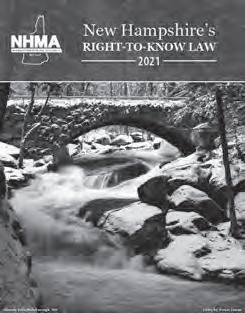

50 NEW HAMPSHIRE TOWN AND CITY www.nhmunicipal.org
Visit Calendar of Events to register: www.nhmuncipal.org
— This Moment in NHMA History —
1998 – 25 years ago…
The New Hampshire’s Supreme Court decision in the “Claremont” education funding lawsuit placed different and immediate pressures on the Legislature to determine what is an “adequate” education and to fund it in a way that was proportional and constitutional.
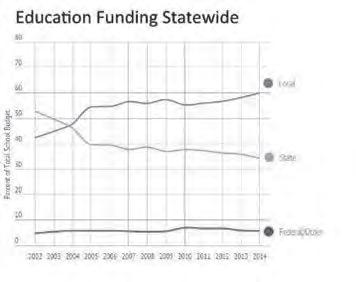
To help address the training and resource needs of municipal officials, in 1998, Antioch New England Institute established the Selectperson Institute, a series of four, full-day participatory workshops designed to enhance their community leadership and management skills. Topics covered include the state's right-to-know laws, zoning and planning rules, how to interact with the media, and legal issues around hiring and firing staff.
Academy for Good Governance Academy for Good Governance
Offered om even years, NHMA today offers The Academy of Good Governance in a series of seven courses created by NHMA and Primex, exclusively for elected governing body members (select board, town council, city council, board of aldermen, school board, and village district commissioners). Courses are taught by experienced attorneys and staff from NHMA, Primex, HealthTrust, and the New Hampshire School Boards Association (NHSBA).
The New Hampshire Main Street Center, a private statewide initiative created to stimulate downtown revitalization and the historic and economic redevelopment of traditional New Hampshire business districts, helped New Hampshire’s cities and towns recapture downtown’s important “sense of place.”


?? ?
According to Wikipedia, this town was incorporated in 1727 as one of six towns granted by Massachusetts. It started as a parish of Exeter and was granted full town privileges by the legislature in 1737.
NAME THAT TOWN OR CITY

The Lamprey River, running through the town, was named for John Lamprey, an early settler. For a while, the town was called "Lampreyville." It was a center of the New England shipping trade with the West Indies. The town's main exports were timber, dried fish from the Squamscott River and salted alewives from the Lamprey River. The return cargo brought whale oil, molasses, and rum. This town is also known for its robust shipbuilding presence. There were many ships built for the Royal Navy using trees from this town and the surrounding towns.
When you have figured out the answer, email it to tfortier@nhmunicipal.org. The answer will appear in the November/December 2023 issue.
ANSWER TO PHOTO IN THE JULY/AUGUST ISSUE: The photo on page 43 in the last issue of New Hampshire Town and City magazine is that of the Town of Brookfield.
Special thanks to: Marshall Buttrick (Greenfield); Judy Bibbins (Franklin) and Joanne Dolbear (Brookfield) who all responded with the correct answer.
51 www.nhmunicipal.org SEPT/OCT 2023
?
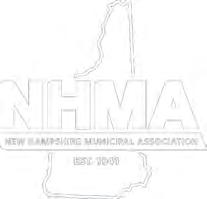
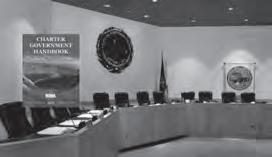
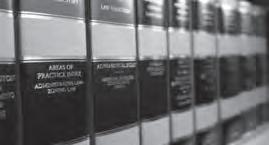
52 NEW HAMPSHIRE TOWN AND CITY www.nhmunicipal.org


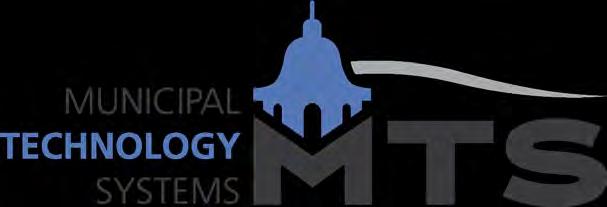
Municipal Resources, Inc.| Municipal Technology Systems 603.279.0352 | info@mrigov.com www.mrigov.com Ser ving the Needs of Ne w Hampshire Municipalities for Over 30 Year s Relevant Experience Ef fecti ve Solutions Valuable Results Fund Acccounting for New Hampshire




Periodical Postage Paid at Concord, NH 25 Triangle Park Drive Concord, NH 03301 800.527.5001 | www.healthtrustnh.org Medical and Prescription Drug | Dental | Benefit Advantage FSA and HRA Services | Disability and Life Slice of Life Wellness Program | LiveHealth Online | LifeResources EAP SmartShopper | Included Health | Corigen® Medication Safety Program HealthTrust Can Help! • We offer trainings and resources to help New Hampshire’s public employers foster a supportive work environment. • We provide the benefits your employees and their family members need to achieve optimal mental and physical health. • Our onsite Wellness Coordinators promote a culture of wellness at your workplace. Together we can create happier, healthier, more productive communities. Want to Boost Morale at Your Workplace?




































 M.L. Byrnes, NHMA Executive Director
M.L. Byrnes, NHMA Executive Director











 By: Hadley Barndollar, New Hampshire Bulletin
By: Hadley Barndollar, New Hampshire Bulletin











































 By Natch Greyes, Government Affairs Counsel
By Natch Greyes, Government Affairs Counsel





















 By Stephen C. Buckley, NHMA Legal Services Counsel
By Stephen C. Buckley, NHMA Legal Services Counsel


























